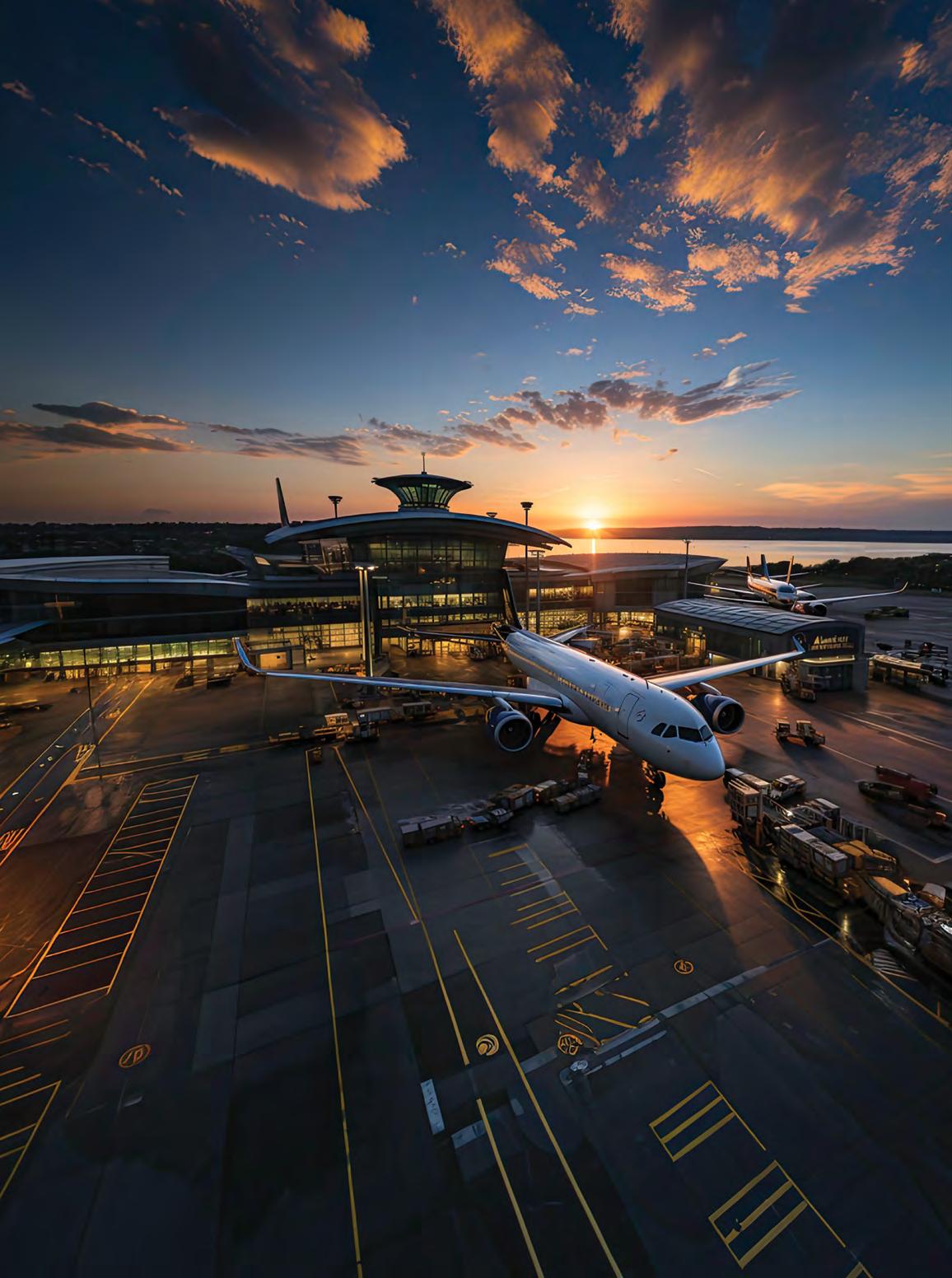
MAY 2024 CONNECTING TRADE PROFESSIONALS WITH INDUSTRY INTELLIGENCE AUTOMATION #CEO Insights PORT Old is Gold COVER Navigating Turbulent Skies DISCOVERING THE ADEPT MANOEUVRES OF IN NAVIGATING UNFORESEEABLE AIR CARGO COMPANIES
CHALLENGES






























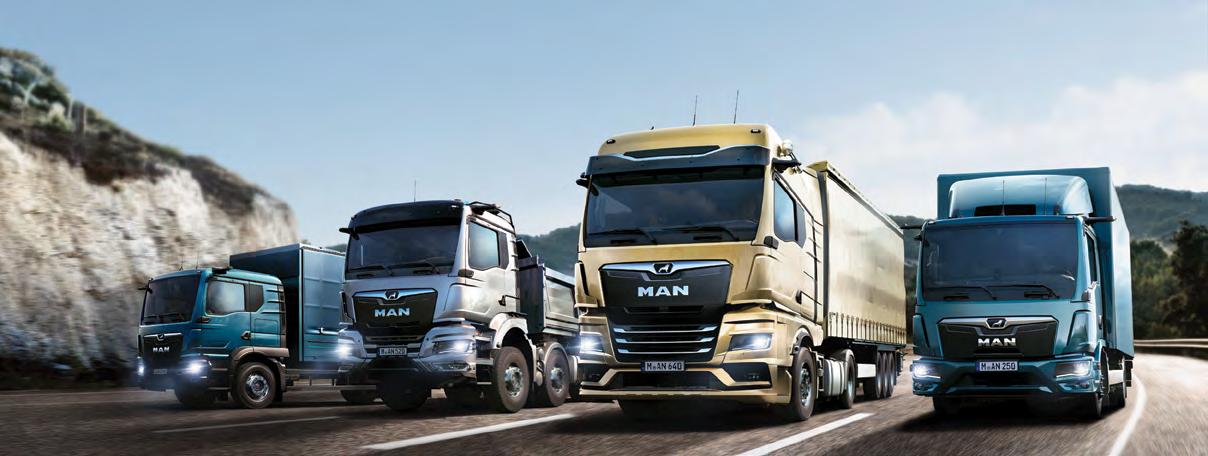










































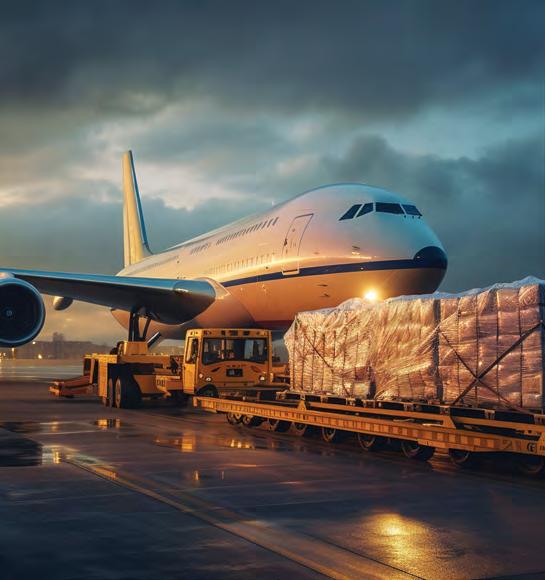
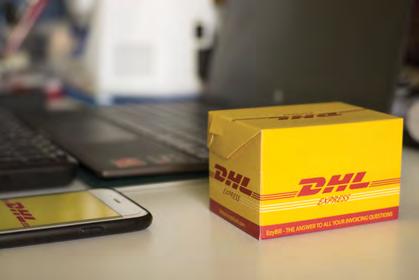
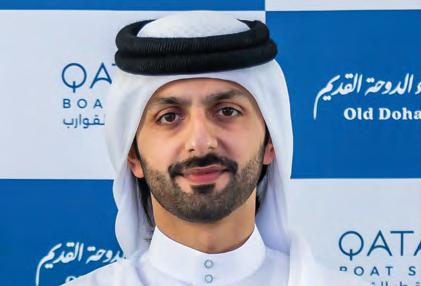
IN THIS ISSUE COVER 26 AUTOMATION #CEO INSIGHTS 30 CYBERSECURITY GUARDIANS OF THE TRANSIT REALM 32 LAST MILE FROM PARCEL TO PACKAGE 38 ECONOMIC CITY EMAAR, THE ECONOMIC CITY SIGNS AGREEMENT WITH ARAMEX TO ADVANCE LOGISTICS SUSTAINABILITY IN KAEC 16 TALKING POINT THE ROBOTIC WAY 18 REPORT NMDC GROUP ANNOUNCES FINANCIAL RESULTS FOR Q1 2024 20 LAUNCH INVESTOPIA 2024: IOTA FOUNDATION LAUNCHES $10M INVESTMENT FUND 22 SUPPLY CHAIN FRONTLINE FORECASTS 40 SOLUTIONS NAVIGATING GLOBAL FRONTIERS 44 REGIONAL NEWS SHEIKH MOHAMMED BIN RASHID GREENLIGHTS NEW PASSENGER TERMINAL DESIGNS FOR AL MAKTOUM AIRPORT 46 PORT OLD IS GOLD NAVIGATING TURBULENT SKIES 22 46 34 LOGISTICS NEWS ME | MAY 2024 | 3
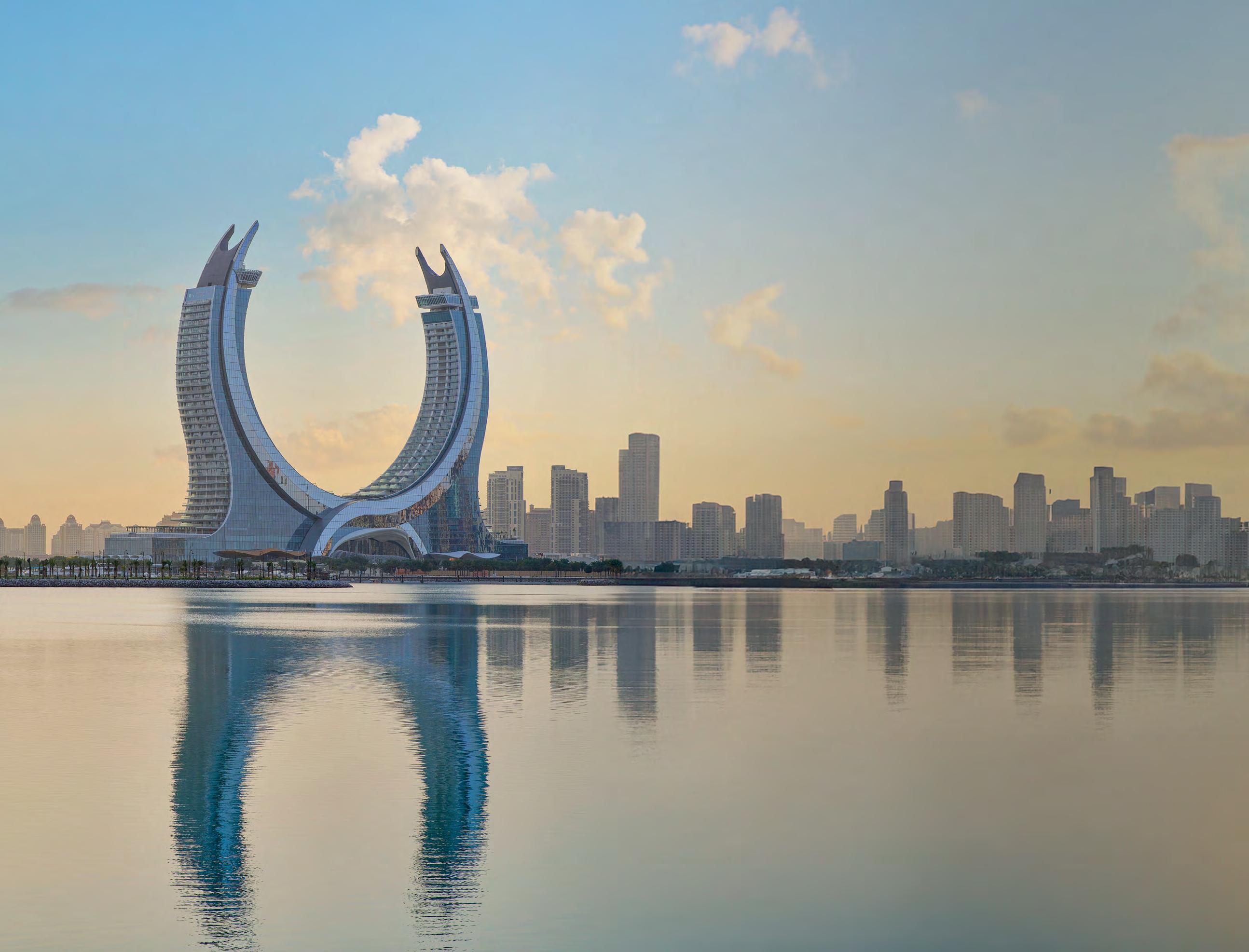
Nestled by the coast of Lusail sits the splendor of Raf es and Fairmont Doha, where luxury is rooted in even the smallest details. Open the doors to mesmerizing hospitality and make memories in a world of sophistication.

CONNECTING TRADE PROFESSIONALS WITH INDUSTRY INTELLIGENCE
CEO
Wissam Younane wissam@bncpublishing.net
Director
CEO
Rabih Najm rabih@bncpublishing.net
Wissam Younane wissam@bncpublishing.net
Group Publishing Director
Director
Joaquim D’Costa jo@bncpublishing.net
Rabih Najm rabih@bncpublishing.net
Editor-in-Chief
Group Publishing Director
Vibha Mehta vibha@bncpublishing.net
Joaquim D'Costa jo@bncpublishing.net
Sales Manager
Editor-in-Chief
Alex Brown alex@bncpublishing.net
Vibha Mehta vibha@bncpublishing.net
Editorial Assistant
Managing Editor
Aya Zhang aya@bncpublishing.net
Kasun Illankoon kasun@bncpublishing.net
Creative Lead
SUBSCRIBE subscriptions@bncpublishing.net
subscriptions@bncpublishing.net
PO Box 502511 Dubai, United Arab Emirates P +971 4 4200 506 | F +971 4 4200 196
For all commercial enquiries, contact jo@bncpublishing.net T +971 50 440 2706
PO Box 502511 Dubai, United Arab Emirates P +971 4 4200 506 | F +971 4 4200 196
Christian Harb chriss@bncpublishing.net
Design Christian Harb
Editorial Design
Marketing Executive
Rizaldi Febrian
Aaron Joshua Sinanbam aj@bncpublishing.net
Marketing Executive
Digital Media Producer
Aaron Joshua Sinanbam aj@bncpublishing.net
Alexander Bungas
Videographer Alexander Bungas
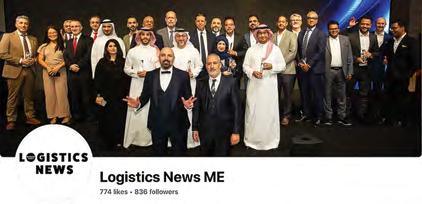
All rights reserved © 2023. Opinions expressed are solely those of the contributors. Logistics News ME and all subsidiary publications in the MENA region are officially licensed exclusively to BNC Publishing in the MENA region by Logistics News ME. No part of this magazine may be reproduced or transmitted in any form or by any means without written permission of the publisher.
Printed by United Printing and Publishing | upp.ae
For all commercial enquiries, contact jo@bncpublishing.net T +971 50 440 2706 All rights reserved © 2023. Opinions expressed are solely those of the contributors. Logistics News ME and all subsidiary publications in the MENA region are o cially licensed exclusively to BNC Publishing in the MENA region by Logistics News ME. No part of this magazine may be reproduced or transmitted in any form or by any means without written permission of the publisher.
Printed by United Printing and Publishing | upp.ae
In addition to our print edition, we’re bringing you all sorts of industry news on our web mediums. We’re looking forward to interacting with our readers on all of our social media and web platforms. See you on the web!
addition to our we’re bringing you all sorts of industry news on our web mediums. We’re looking forward to interacting with our readers on all of our social media and web platforms. See you on the web!
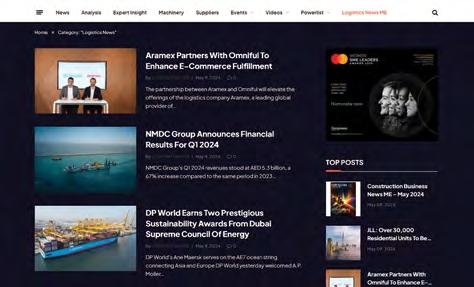
Images used in Logistics News ME are credited when necessary. Attributed use of copyrighted images with permission. All images not credited courtesy Shutterstock. cbnme.com ACCESS FRESH CONTENT DAILY ON OUR WEBSITE! Logistics News ME @Logisticsnewsme Logistics News ME
6 | LOGISTICS NEWS ME | JULY 2023 WWW.CBNME.COM
SUBSCRIBE
Images used in Logistics News ME
ACCESS FRESH CONTENT DAILY ON OUR WEBSITE! Logistics News ME @Logisticsnewsme Logistics News ME logistcsnewsme
are credited when necessary. Attributed use of copyrighted images with permission. All images not credited courtesy Shutterstock. cbnme.com
CONNECTING
PROFESSIONALS WITH INDUSTRY INTELLIGENCE 6 | LOGISTICS NEWS ME | MAY 2024 WWW.CBNME.COM
TRADE
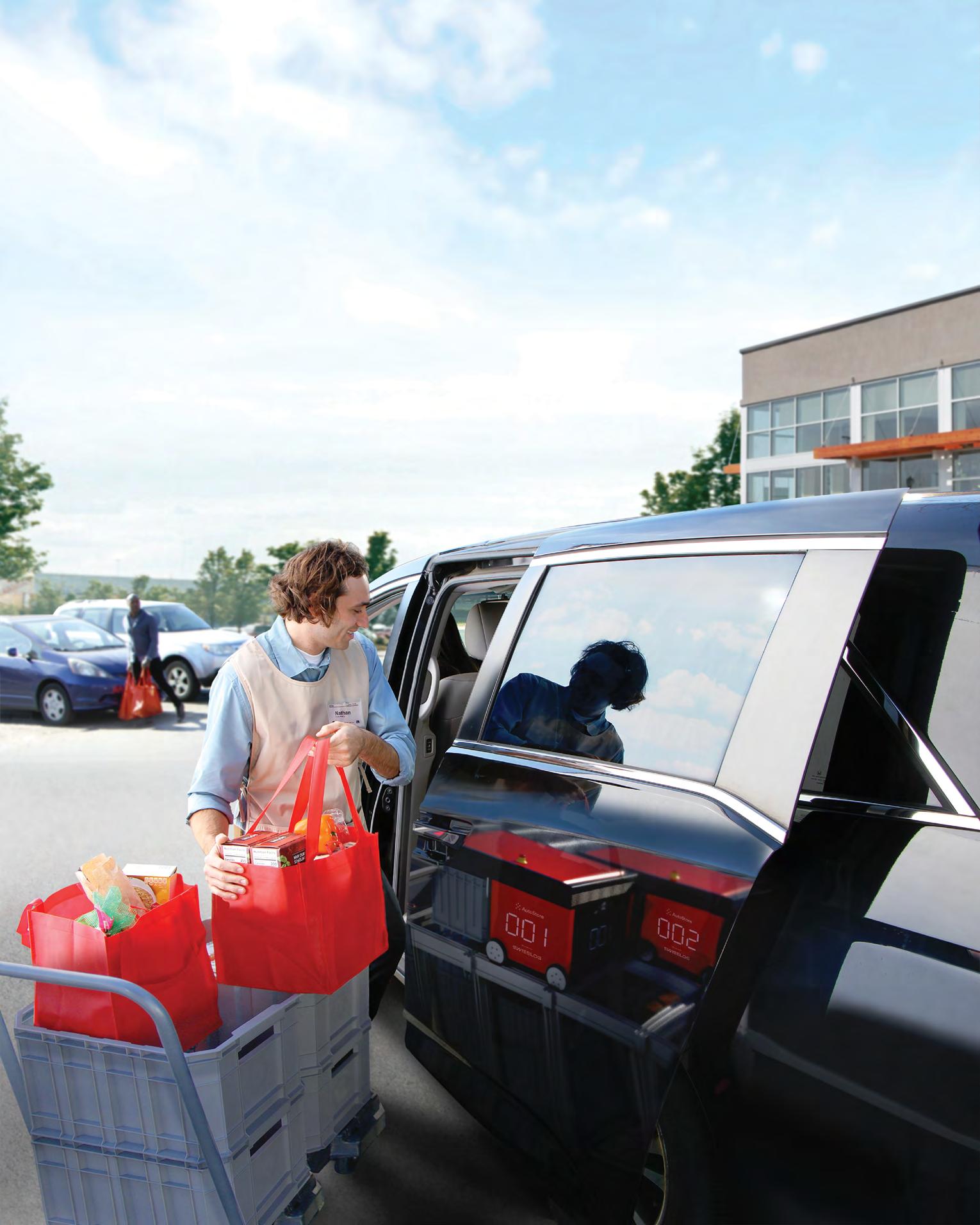
UNFOLDING HORIZONS
The Necessity of Growth for Enriching Lives

In our ever-changing world, growth is not just vital for survival—it is essential for thriving. Embracing growth in personal, societal, and global dimensions opens a promising pathway to enhancing life quality. This concept extends beyond economic measures to encompass intellectual, emotional, and spiritual growth.
Lifelong learning, for instance, enriches our minds, preparing us to handle life's uncertainties, thereby fostering a resilient, informed, and proactive society.
Growth also promotes inclusivity and equality, creating environments where diverse talents can collaborate to innovate and tackle complex challenges. However, growth must be pursued sustainably. It's crucial to balance our developmental needs with environmental conservation to ensure we don't compromise the well-being of future generations. True growth is about enhancing the quality of life without harming the planet.
This ethos of growth, aimed at bettering life for all, is not a luxury but a necessity. It's a driving force for innovation, a beacon of hope for the underprivileged, and a foundation for building a more equitable and thriving world. Every one of us plays a crucial role in this journey. Through personal development, community engagement, or global advocacy, our collective efforts in promoting growth can profoundly improve our lives and those of future generations. Let's champion growth as the cornerstone of a brighter future – with an Open Mindset!
 Vibha Mehta Editor-in-Chief vibha@bncpublishing.net
Vibha Mehta Editor-in-Chief vibha@bncpublishing.net
Vibha Mehta
vibhamehta01
@vibhamehta01
EDITOR’S NOTE LNME
8 | LOGISTICS NEWS ME | MAY 2024 WWW.CBNME.COM
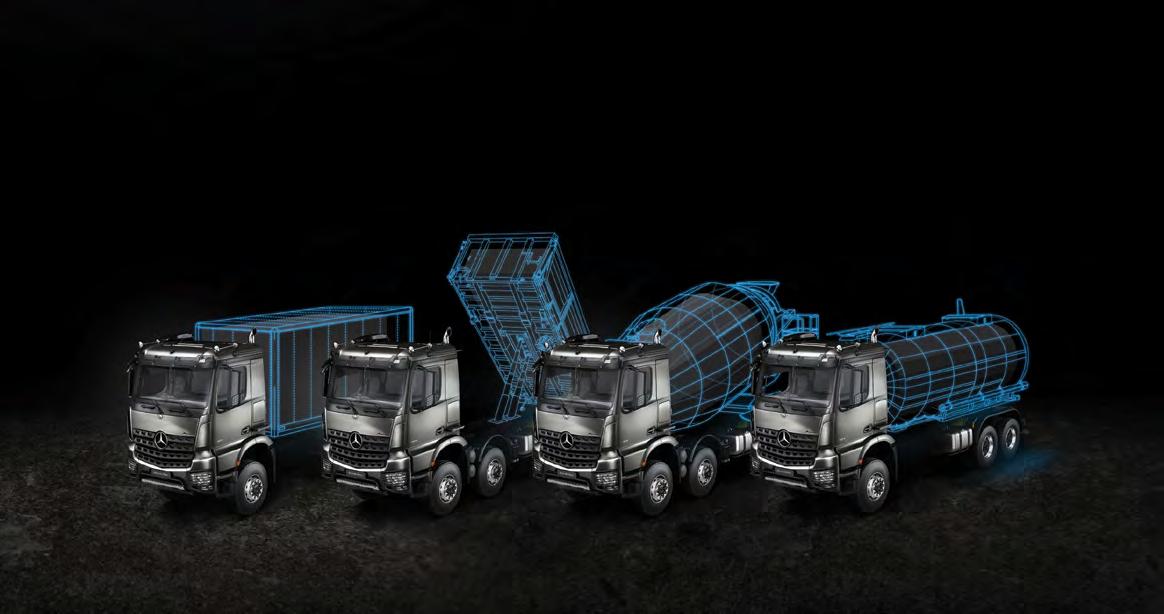
The Arocs. Your Reliable Partner for Every Construction Transportation Task.
Regardless of whether it is a rigid chassis, concrete mixer or heavy-duty tipper: The Mercedes-Benz Arocs provides an especially robust, resilient vehicle that is optimally prepared for use for any construction haulage challenge. Configure it now to suit your requirements and those of your project.


SUITE TREAT
Step into a world of opulence when you book a Suite at Raffles Doha.
Experience the added luxury of QAR 750 credit to spend on dining in the hotel, and QAR 500 towards any Spa treatment.
Children aged 12 and below are welcome to indulge in the enchantment of complimentary dining.
Rates starting from QAR 3,500 per night
For reservations, please call +974 4030 7100 or email reservations.doha@raffles.com


Raffles
Iconic Towers, Marina District, PO BOX 4747, Lusail, Qatar
Doha,
SAL ACTIVATES THE FULFILLMENT SECTOR WAREHOUSES TO TRANSFORM LOGISTICS LANDSCAPE IN SAUDI ARABIA
SAL is dedicated to fulfilling the expanding demands of Saudi Arabia’s logistics sector
SAL, Saudi Arabia’s leading logistics and supply chain solutions provider, is proud to announce the launch of its Fulfillment Business Unit, a one-stop-shop solution aimed at revolutionizing the logistics and supply chain industry in the Kingdom.
The company’s Fulfillment Services represent a comprehensive commitment to meet the growing requirements and accelerated needs in the logistics sector at the Saudi market. By successfully providing an integrated approach that combines air cargo handling and logistics solutions, the firm is introducing its new sector to enhance operational efficiency and increase reliability. With a vision to transform the logistics landscape, SAL’s Fulfillment Services are designed as a one-stop-shop solution. Leveraging its strong foothold as a leading logistics company with an expansive logistics network, the company aims to address the growing demand for integrated fulfillment services in the Saudi market.
The heart of SAL’s Fulfillment Business Unit lies in its holistic approach, combining a comprehensive suite of valueadded services with expertise in
cold chain logistics and robust digital enablement. By seamlessly integrating fulfillment and logistics solutions, the firm today is offering an integrated service that extends from the first mile to the last.
The organization’s Fulfilment centers will offer advanced Warehouse Management System (WMS), which serves as the backbone of its digital strategy, providing customers with realtime access to operational data and metrics. This digital platform enables users to place orders, track their progress, and generate customized reports, enhancing operational transparency and efficiency.
As part of its expansion
strategy, SAL is investing in the establishment of a growing network of Fulfillment centers in key locations in the kingdom. With targeted facilities in Riyadh, Jeddah port and Dammam port, SAL’s state-of-the-art warehouses serve a variety of industries, ranging from perishable goods to pharmaceuticals and high-value materials.
“Our Fulfillment Services represent our solid commitment to delivering unparalleled logistics solutions,” said Faisal Albedah, CEO of SAL. “With our extensive network, cutting-edge technologies, and dedicated team, we are well-positioned to meet the evolving needs of our customers and drive growth in the Saudi logistics sector.”
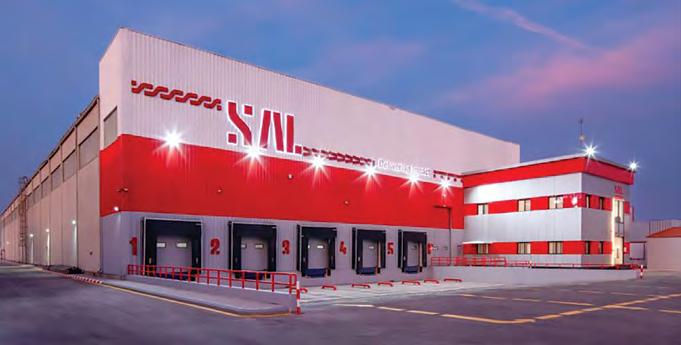
REGIONAL NEWS LNME
12 | LOGISTICS NEWS ME | MAY 2024 WWW.CBNME.COM
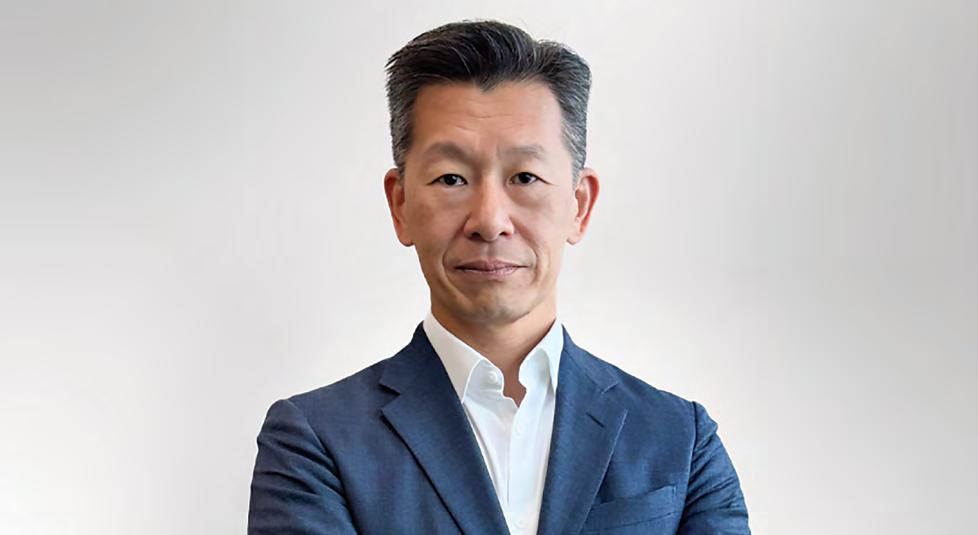
SPARK ANNOUNCES APPOINTMENT OF SPARK LOGISTICS CEO
Dave Lee was appointed as CEO of SPARK
King Salman Energy Park (SPARK), the leading industrial hub at the heart of the energy market, announces the appointment of Dave Lee as the CEO of SPARK Logistics, a joint venture established between SPARK and Hutchison Ports to operate a state-of-the-art, fully automated Logistics Zone and the region’s largest dedicated private dry port.
Lee’s appointment is a significant step towards establishing the company
as a global hub for trade, transport and logistics, in line with the National Industrial Development and Logistics Program.
Lee brings over two decades of experience in the logistics and port management industry. He has held several leadership positions at Hutchison Ports, where he played a key role in driving the company’s global expansion strategy. carrying an innovative approach to strategy development, terminal planning, and business development.
Lee holds a Master of Business Administration (MBA) in Finance from The Wharton School of the University of Pennsylvania, in addition to a Master of Engineering from Cornell University.
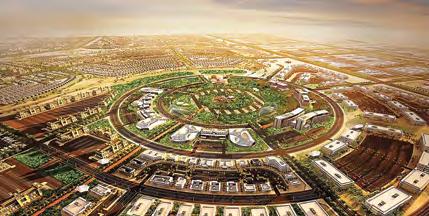
REGIONAL NEWS
LOGISTICS NEWS ME | MAY 2024 | 13

SAUDI ARABIA & OMAN JOIN HANDS TO DEVELOP INDUSTRIAL ZONES IN THE SULTANATE
The memorandum with Saudi Arabia aims to encourage the development of the Sultanate of Oman
Oman and Saudi Arabia signed an agreement to finance infrastructure projects in several industrial zones within Oman, aiming to enhance the logistics sector by providing essential services. This memorandum of understanding supports the development of these zones and underscores a commitment to improving logistical capabilities.
Oman’s Ministry of Finance stated that the agreement is part of bilateral development cooperation to enhance
development areas in the Sultanate. The memorandum aims to engage the private sector in Oman‘s economic development aligned with ‘Oman Vision 2040.’ Omani Finance Minister Sultan Al-Habsi and Saudi Fund for Development CEO Sultan Al-Murshed discussed cooperation mechanisms and joint project developments during the memorandum signing.

REGIONAL NEWS LNME
14 | LOGISTICS NEWS ME | MAY 2024 WWW.CBNME.COM
DNATA APPOINTS GLOBAL HEAD OF AIRPORT OPERATION
Clive Sauvé-Hopkins to oversee dnata’s ground handling and cargo businesses across 16 countries.
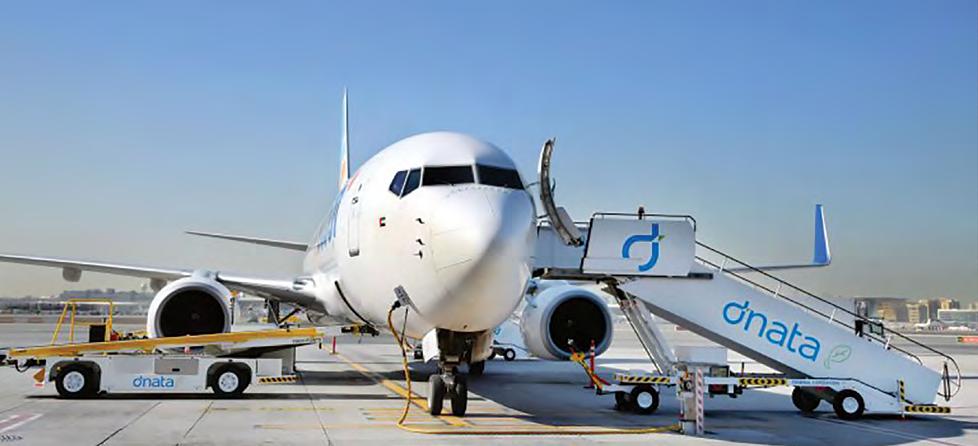
dnata, a leading global air and travel services provider, announced the appointment of Clive Sauvé-Hopkins to the position of Divisional Senior Vice President (DSVP), Airport Operations.
In his role, Clive will oversee the company’s global ground handling and cargo business at 97 airports in 16 countries. He will manage a team of over 37,000 customer-centric aviation professionals, ensuring consistent high quality and safe services for more than 330 airline customers.
Clive brings with him extensive international experience in commercial strategy and business transformation, having held several senior leadership positions with Swissport, Servisair, Aviapartner, Qatar Airways, and the Abu Dhabi Developmental Holding Company (ADQ).
Clive will be based in Dubai, United
Arab Emirates, and report to Steve Allen, dnata’s Group Chief Executive Officer. His appointment is effective immediately.
Steve Allen said: “I’m pleased to have Clive on board our global management team. Clive has all the experience and skills to drive our growth strategy and ensure consistent quality and safe services, with a continued focus on people and sustainability across our global operations. I look forward to working together as we enhance our business and offering.”
dnata is a leading global air and travel services provider. Established in 1959, the company offers quality and
safe ground handling, cargo, travel, catering and retail services in over 30 countries across six continents. In the financial year 2022-23, dnata’s customer-oriented teams handled over 710,000 aircraft turns, moved over 2.7 million tonnes of cargo, uplifted 111.4 million meals, and recorded a total transaction value (TTV) of travel services of US$ 1.9 billion.
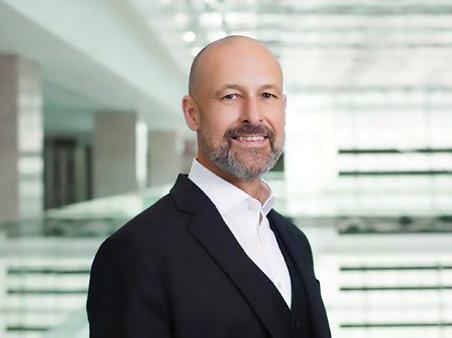 SAUVÉ-HOPKINS, Divisional Senior Vice President (DSVP) Airport Operations
SAUVÉ-HOPKINS, Divisional Senior Vice President (DSVP) Airport Operations
REGIONAL NEWS
LOGISTICS NEWS ME | MAY 2024 | 15
CLIVE
Ash Sharma is the Managing Director of IA and the lead for our Robotics and Warehouse Automation Division. He has 20 years of experience in sectors ranging from industrial automation and smart manufacturing to drones, robotics, and medical technology.
Amazon has started to test a humanoid robot, Digit, in its warehouses this week, raising fresh questions about how swiftly androids will be utilized in logistics. Made by Agility Robotics, the bipedal robot can grasp and lift objects, and it will start by shifting empty tote boxes as Amazon continues to explore new ways of automating its warehouses.
Warehousing offers the perfect combination of repetitiveness and menial work, requiring more standardization and an unneeded form of handling things. For companies operating fulfilment centres with a broad product mix or fluctuating demand, humanoid robots’ flexibility could solve the ongoing labour and skills crisis in the logistics industry. For example, humanoid robots could be dropped into the workforce during seasonal peak demand without requiring substantial operational changes, unlike other automated technologies requiring significant changes to warehouse workflows.
One early application for humanoid robots is likely to be trailer unloading, as it is simple, repetitive and physically demanding. Unlike other robotic solutions, humanoid robots offer the additional flexibility to take on multiple tasks in a facility rather than being limited to a single process or workflow.
Despite the current media storm around the technology and the number of bots in development,

THE ROBOTIC WAY
Warehouses may be the first industry to adopt humanoid robot workers
this change will take time, as pilot projects can take many months, or even years, to complete. Robotics solutions are in high demand within the logistics sector due to severe labour and skills shortages and volatile demand. However, while the widespread use of humanoid robots within warehouses is undoubtedly a possibility, it is not an inevitability, and we may find that other robotics technology is better suited to specific tasks and comes with fewer ethical problems, particularly in terms of perceived role replacement.
Warehouses are ripe for using humanoid workers, but ethical obstacles pose a problem Reports claim Amazon’s decision to
trial Digit in its warehouses raises concerns about the displacement of human workers by machines. Other automated systems are ‘unhuman’ enough not to cause unease to the same extent as humanoid workers. In response to fears around job loss, Amazon has emphasized the “hundreds of thousands of new jobs” that have been created as a result of its use of robotic systems, including “700 categories of new job types, in skilled roles, which didn’t exist within the company beforehand”. The global warehousing sector, particularly within the US, has faced critical labour and skills shortages in recent years. A poll published earlier this year by MHI and Deloitte
LNME TALKING POINT
Originally written by Ash Sharma. Edited by Vibha Mehta
16 | LOGISTICS NEWS ME | MAY 2024 WWW.CBNME.COM
ASH SHARMA, Managing Director of IA
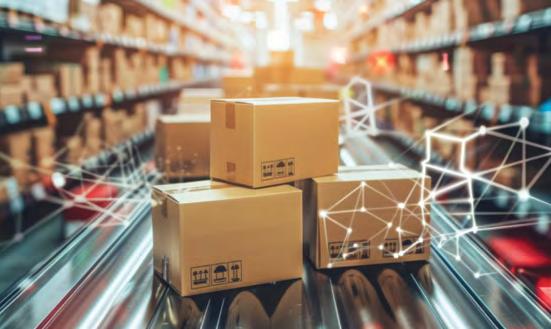
revealed that hiring and retaining qualified workers and talent shortages were the leading challenges for US supply chain leaders, with many planning to invest in robotics and automation shortly.
Now that the advent of humanoid robots in the warehouse sector is a reality, it is causing ripples through the fulfilment sector about the potential ramifications for the human workforce and how quickly humanoid robots will become a common sight in fulfilment centres. However – although Digit walks on two legs and uses its arms to lift things – we are a long way from a Blade Runner-esque dystopic future in which sentient robots walk undetected among us. In practical terms, Digit has been designed specifically for warehouse automation, where the complexities of human thought and movement are less critical than improving throughput and filling skills and labour gaps.
With almost 1.5 million humans employed across Amazon’s operations, the company is keen to stress the potential to create jobs by deploying humanoid robots and replacing the most “menial, mundane and repetitive” tasks. Developed by Amazon-backed Agility Robotics, Digit is described by the retail titan as “a mobile manipulator solution”. Standing 5ft 9in (175cm) tall, Digit can lift and carry up to 35lbs (16kg), crouch, reach, pick up and put down.
Tye Brady, chief technologist at Amazon Robotics, told reporters in Seattle that the move does not mean job cuts at Amazon and people are “irreplaceable” to the business because of their “ability to think at a higher level, the ability to diagnose problems”.
Companies such as Figure AI and Boston Dynamics are developing and testing other humanoid robots for distribution centres. Tesla’s Optimus Robot can sort objects fully autonomously as it can self-calibrate its arms and legs, while the commercial launch of Apollo by tech startup Apptronik is expected to occur in late 2024. Videos of the humanoid robot
have already shown walking, case picking, palletizing and unloading trailers.
In reality, warehouse automation solutions have been in place for decades now, including autonomous mobile robots (AMRs) that work alongside human workers and carry out many of the menial, physically demanding jobs. Automated storage and retrieval systems can pick orders much faster and are being used alongside human workers to increase throughput.
Most companies use robotic technology to complement and collaborate with their human workforce. Anecdotal evidence suggests that people like working alongside technology such as AMRs, where robots essentially carry out menial, physically demanding jobs and act in a supervisory capacity. However, this may become more problematic regarding humanoid robots; who wants to be outlifted, outpaced, or outperformed by a robot that looks like a person?
So, how soon will humanoid robots become a regular feature in warehouses?
Despite Amazon’s latest move, the widespread use of humanoid workers in the warehouse is some way off. Pilots of new technology such as this can take up to 18 months; if successful, rollout tends to be in small steps. However, Amazon has always been a leader in its use of robotics, and the rest of the industry tends to follow (or fail!), so this pilot could be the catalyst for humanoid robot uptake in the coming years. How human workers will respond to their robot colleagues is still being determined, but with the warehouse industry facing a skills and labour crisis, this could offer the solution companies have been looking for.
Is it possible for the use of humanoid robots to be hyped too much? And given the representations of humanoid robots we often see in popular culture, will this shape public opinion? Can robots look too much like people? The more lifelike humanoid robots are, the more they are personified labour replacements.
It is too early to tell whether humanoid robots will become a common sight in warehouses around the world in the long term—much will depend on how successful these early pilots are. Humanoid robots offer the potential flexibility and scalability to be used within existing warehouse operations alongside the human workforce, helping to pick, move, and sort goods. They are the next logical step in the evolution of the multibillion-dollar robotics industry, as customers seek solutions that can be used across multiple workflows and applications.
At Interact Analysis, humanoid robots’ flexibility and scalability could solve labour and skills shortages. However, this does not come without complications, and it is yet to be seen whether these will be easily overcome to see their rapid deployment in warehouses.
THE ROBOTIC WAY
LOGISTICS NEWS ME | MAY 2024 | 17
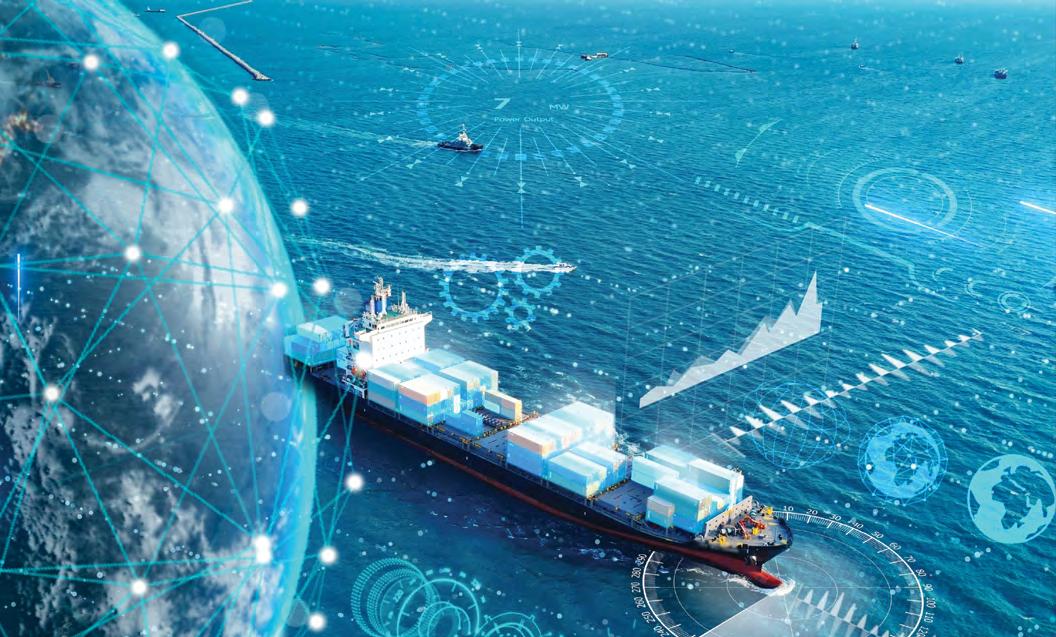
NMDC GROUP ANNOUNCES FINANCIAL RESULTS FOR Q1 2024
NMDC Group’s Q1 2024 revenues stood at AED 5.3 billion, a 67% increase compared to the same period in 2023
NMDC Group, a global leader in engineering, procurement, construction, and marine dredging (Abu Dhabi Securities Exchange: NMDC), has announced its financial results for the first quarter of 2024 (Q1 2024), reporting a 67% growth in revenues and a 112% surge in net profits compared to the same period last year. In
addition, NMDC Group announced the launch of new projects and the commencement of strategic initiatives, highlighting the company’s competitive standing in both local and international markets.
In Q1 2024, NMDC Group’s revenues soared to AED 5.342 billion, up 67% from AED 3.208 billion in Q1
LNME REPORT 18 | LOGISTICS NEWS ME | MAY 2024 WWW.CBNME.COM
2023, marking an increase of AED 2.134 billion. Net profits also saw a substantial rise, with a 112% increase from AED 303 million in Q1 2023 to AED 641 million, effectively doubling the Group’s earnings from the previous year and highlighting a robust performance and strategic expansion into new projects.
These financial milestones in Q1 2024 underscore the strength of NMDC Group’s financial health and strategic positioning. The company achieves unprecedented profitability amid significant operational expansion and is underpinned by a comprehensive strategy focused on enhancing value for partners and shareholders.
The Group’s asset value also increased by 10%, reaching AED 22.959 billion in Q1 2024, up from AED 20.847 billion the previous year—an increase of AED 2.112 billion. In 2024, NMDC Group has been awarded contracts worth AED 3.3 billion, further solidifying its market position.
His Excellency Mohamed Thani Murshed Ghannam Al Rumaithi, Chairman of the Board of Directors of NMDC Group, credited these financial achievements to the visionary leadership of His Highness Sheikh Mohammed bin Zayed Al Nahyan, President of the UAE, alongside the diligent oversight of His Highness Sheikh Khalid bin Mohammed bin Zayed Al Nahyan, the Crown Prince of Abu Dhabi and Chairman of the Executive Council of Abu Dhabi. He emphasized their unwavering support as critical in driving the Group towards new heights of growth, expansion, and lasting finish. Excellency added, “At NMDC Group, we are committed to enhancing the sustainable impact on our financial outcomes. We aim
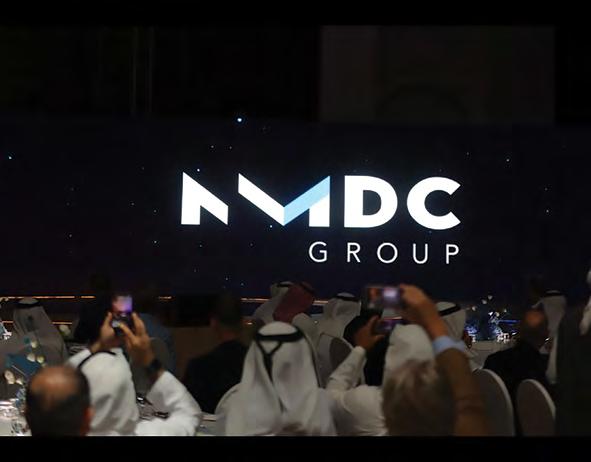
to foster growth and expansion locally and internationally by leveraging our innovative services and solutions. This aligns with our ambitious goals and strategies for advancing development, driving market expansion, and providing flexible and effective solutions that adhere to the highest sustainability standards. Our efforts are dedicated to supporting broad economic development goals and ensuring the satisfaction of our customers and partners.”
Eng. Yasser Zaghloul, CEO of NMDC Group, stated, “NMDC Group is uniquely positioned to address the demands of local and global markets, thanks to our extensive capabilities and integrated operational solutions. Our approach ensures seamless coordination across all facets of the company, boosting our operational efficiency and financial outcomes. This strategic alignment underscores our significant growth and institutional development and keeps us in step with international industry standards.
Our active sectors are pivotal in driving sustainable economic development.”
Zaghloul further noted, “As we look forward, we focus on sharpening our financial indicators, optimizing our operational processes to enhance profitability and revenue, and expanding our asset portfolio. These initiatives are designed to meet the expectations of our partners and shareholders and to accelerate comprehensive economic growth. Our strategy is built on a solid foundation of past achievements and the strategic acquisition of new projects. We are excited to work alongside our strategic partners to roll out these projects in the next phase.”
NMDC Group remains committed to executing strategic projects that meet the highest standards of quality, efficiency, sustainability, and safety, thus ensuring substantial value creation for all shareholders and strategic partners across local, regional, and global levels.
NMDC GROUP ANNOUNCES FINANCIAL RESULTS FOR Q1 2024
LOGISTICS NEWS ME | MAY 2024 | 19

INVESTOPIA 2024: IOTA FOUNDATION LAUNCHES $10M INVESTMENT FUND
Fund cements Investopia’s position as a global incubator for technology innovation investments, digital trade, and new economy projects.
His Excellency Abdulla Bin Touq Al Marri, the Minister of Economy and Chairman of Investopia, attended the unveiling of a new investment fund valued at $10 million by the IOTA Ecosystem DLT Foundation during Investopia 2024. The fund’s primary goal is to
promote the development of TradeTech solutions and support the expansion of startups and venture projects based on digital technology initiatives and the tokenisation of tangible assets.
The announcement aligns with Investopia’s vision to inspire entrepreneurs to expand into new economic sectors by offering
LNME LAUNCH
20 | LOGISTICS NEWS ME | MAY 2024 WWW.CBNME.COM

the necessary tools and opportunities to foster the growth and prosperity of their innovative projects.
The fund, introduced in partnership with TLIP, a specialised digital platform for trade data storage and exchange, aims to enhance the trade technology landscape and foster a more interconnected, efficient, and accessible global trade system. Additionally, it seeks to offer trade financing solutions to businesses and governments. This initiative aligns with the United Arab Emirates’ commitment to advancing technologies applied in global trade with the support of Investopia. The main focus will be on supporting UAE-based startups across Africa.
These investments are a step forward to redefining the digital trade and finance landscape. By fostering a supportive ecosystem for technological innovation, IOTA will have the opportunity to unlock new possibilities and opportunities for seamless and efficient global trade, benefiting societies and economies around the globe.
Investopia 2024 played a crucial role in facilitating the launch of the new investment fund, offering an ideal platform to showcase IOTA’s innovative solutions to the global community of investors and decision-makers. Additionally, it enabled the Foundation to establish effective communication with partners.
The announcement aligns with the UAE’s commitment to enhancing its trade technology and digital solutions, solidifying its position as a global hub for technology and innovation. The UAE is a leading trade hub that plays an active role in reshaping global trade mechanisms by leveraging state-of-the-art solutions and advanced technologies. These endeavours align with the “We the UAE 2031” vision to become the international capital of the new economy over the next decade.
IOTA, registered with the Abu Dhabi Global Market, is focused on developing the next generation of decentralised governance technologies. They aim to build a new digital economy by redesigning how people and devices connect and exchange information and value. The Foundation leverages cutting-edge technologies such as blockchain, digital currencies, distributed data technology, the Internet of Things (IoT), and other modern financial technology applications. Through collaboration with a global network and partners, IOTA aims to make a sustainable impact by researching and developing technological advancements.
Investopia 2024, held in Abu Dhabi for two days at the end of February, brought together top investors, businesses, economy leaders, experts, and entrepreneurs. The event fostered an environment conducive to networking, collaboration, and identifying potential joint investment opportunities. Over 2,500 participants attended, including more than 90 speakers who discussed various crucial investment themes and the new economy, including digital economy, tourism, innovation, sports technology, modern financial technologies, healthcare, green economy, and venture capital investments.

INVESTOPIA 2024: IOTA FOUNDATION LAUNCHES $10M INVESTMENT FUND
LOGISTICS NEWS ME | MAY 2024 | 21
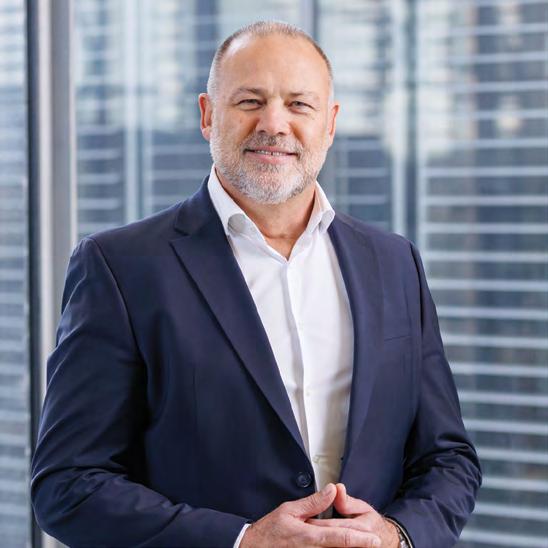
FRONTLINE FORECASTS
Hendrik Venter, CEO Europe Middle East & Africa, DHL Supply Chain on the Future of Freight
DHL Supply Chain in the Middle East stands as a beacon of innovation and efficiency in the logistics landscape. With its strategic geographical positioning and state-of-the-art technology, DHL is not just delivering packages but is also shaping the future of trade in the region. The company leverages cutting-edge solutions like AI-driven forecasting and drone delivery systems, ensuring it stays ahead of the curve in a dynamic market. As it intertwines robust infrastructure with sustainable practices, DHL is committed to reducing its carbon footprint while enhancing service reliability and speed.
Through partnerships with local enterprises and multinational corporations alike, DHL Supply Chain is a critical player in driving economic growth and bridging markets across the Middle East, making it an indispensable pillar of the global logistics network.
1. Let’s talk about your experience in the industry and at DHL Supply Chain.
I became CEO of DHL Supply Chain Europe, Middle East, and Africa in October 2019. Before that, I was CEO for our Central Eastern European business and held several management-level roles throughout the EMEA region since 2009, focused on growing our contract logistics portfolio across multiple sectors like e-commerce, Life sciences Healthcare and automotive mobility. As CEO, I am responsible for 22 countries across the EMEA region, 36,000 employees with operational facilities covering 15 million sqm and over 700+ customers across various sectors. My focus is on growing the business, but the approach has evolved as we double down on developing innovative, sustainable, and bestin-class solutions for our customers and entering emerging markets.
2. How has DHL Supply Chain adapted its operations to address recent challenges in the logistics industry, such as supply chain disruptions and labour shortages?
Inflationary pressures and broader economic instability in the past year are causing more cautious investment but are leading customers to increase their reliance on strategic partnerships to help drive growth. This is an opportunity for us to add value while helping customers find operational efficiencies.
By tapping into our global scale, we have been able to help our customers quickly respond to disruptions. We have leveraged the power of robotics to help combat labour challenges. Our use of collaborative robots allows us to quickly ramp up during peaks or even scale down during unexpected lulls. We have also seen improved turnover rates at warehouses that use technology, which indicates that our associates enjoy working with our digitalization solutions.
We are also using technology to help us better plan and anticipate supply chain disruptions. Our control towers are a good example. They give us complete visibility of our customers’ end-to-end supply chains, and we can use customer and industry data to develop more resiliency.
3. What is your take on digital transformation, and how do you see DHL Supply Chain embedding for a better output?
DHL Supply Chain has been at the forefront of digitalization. Currently, over 90% of our warehouses globally have been touched with various digital technologies, while in the EMEA region, that figure stands at 100%. Our Accelerated Digitalization strategy has guided how we develop, deploy,
LNME SUPPLY CHAIN
22 | LOGISTICS NEWS ME | MAY 2024 WWW.CBNME.COM
and continuously improve technology. We use advanced technologies like artificial intelligence, robotics, the Internet of Things (IoT), and data analytics to optimize our supply chain processes, improving efficiency, productivity, and customer satisfaction.
For example, DHL Supply Chain has deployed robots to automate repetitive tasks, freeing our employees to focus on more complex tasks. We are also using AI-based demand forecasting tools to accurately predict future order volumes, helping us to manage inventory and resources better. We have also invested in IoT technologies to enhance realtime tracking capabilities, providing customers with better visibility into their supply chains. To date, over 350 facilities within the EMEA region are equipped with digital technologies, equating to 6700 deployed devices.
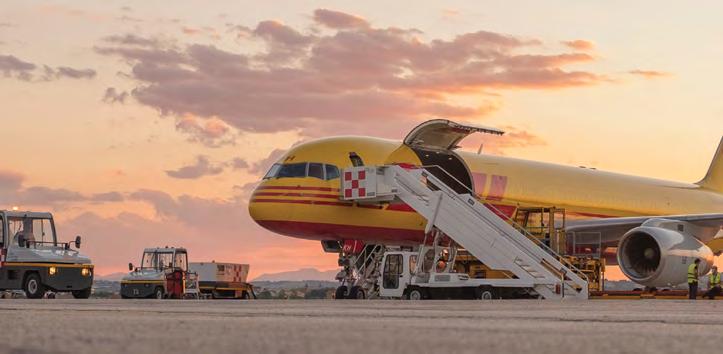
Our
4. Are there any specific industry trends you are currently observing?
• Supply Chain Resilience: The global disruptions caused by the pandemic have highlighted the need for supply chain resilience. This involves diversifying suppliers, increasing inventory visibility, and using predictive analytics for better demand forecasting. Our control towers have been crucial in helping us to improve resilience in our customers’ supply chains. Control towers provide end-to-end visibility across the supply chain, enabling DHL to track and monitor shipments in real-time. This visibility is crucial for identifying disruptions early and taking swift corrective action. By analyzing data from multiple sources, control towers can predict potential disruptions, from weather events to traffic congestion, allowing DHL to proactively mitigate risks for our customers.
• Digitalization: DHL invests in digital technologies to enhance supply chain
• Sustainability: There is a growing emphasis on eco-friendly practices, driven by increasing environmental concerns and regulatory pressures. This includes adopting green vehicles, optimizing routes to reduce fuel consumption, and minimizing waste. DHL has set a target to achieve zero emissions by 2050. We are investing in electric vehicles and sustainable energy solutions, among other initiatives.
• E-commerce Growth: The pandemic has accelerated the shift towards online shopping, increasing demand for efficient last-mile delivery solutions and return logistics. We have, therefore, expanded our offerings to handle e-commerce and other value-added tasks such as packaging and reverse logistics.
• Automation and Robotics: DHL uses robotics and automation in our warehouses to increase efficiency and accuracy.
5. Sustainability is taking centre stage; how is DHL Supply Chain focusing on reducing its environmental impact?
DHL Supply Chain is taking significant steps to reduce our environmental impact, which aligns with DHL Group’s commitment to achieving zero emissions by 2050.
• Alternative Fuels and Electric Vehicles: DHL is gradually transitioning its fleet to electric and low-emission vehicles. This includes both small delivery vans and larger freight trucks.
• Energy-Efficient Warehouses: DHL invests in energy-efficient technologies for our warehouses, such as LED lighting and solar panels. By the end of 2025, we aim to achieve operational carbon neutrality in all our 1,500 warehouses globally. This target is a cornerstone of our environmental strategy, and as of the end of 2023, we have achieved nearly 100% green electricity usage. DHL Supply Chain is shifting from gas-based to electric heating in our warehouses and ensuring that new warehouses are carbon neutral by default.
• Sustainable Supply Chain Solutions: DHL provides consulting and practical solutions to help customers green their supply chains, from design to implementation and management.
• Transport is another key focus, a significant contributor to our carbon footprint, with approximately 96% of DSC’s emission footprint. Addressing this, DHL Supply Chain has implemented the Green Transport Policy, a strategic initiative for decarbonizing transport solutions. This policy mandates using green alternatives for transitioning the fleet, including hydrotreated vegetable oil, biogas, and electric or hydrogen engines. We aim to convert around
FRONTLINE FORECASTS
visibility and efficiency.
digital platform, MySupplyChain, provides our customers with end-to-end visibility across the supply chain.
LOGISTICS NEWS ME | MAY 2024 | 23
LNME SUPPLY CHAIN
2,000 vehicles globally to these cleaner solutions in the next three years. By 2030, the target is a 30% share of sustainable fuels and technologies in road transport, a significant step towards reducing their environmental impact.
• Collaboration is key to achieving these goals. To achieve our sustainability goals, we are dependent on collaboration with OEMs (Original Equipment Manufacturers), carriers, governments, and our customers. OEMs play a significant role in speeding up and scaling electric truck production, and governments establish necessary infrastructure like electric charging stations for trucks.
6. how often should there be supply chain transformation?
There is not a single, perfect schedule for supply chain transformation. Instead, it should be seen as a continuous process of adapting to changing circumstances and leveraging innovative technologies to create a more efficient, resilient, and agile supply chain. Several factors will influence how often a company should revisit and adapt its approach.
• One key driver is the constant advancement of technology. The supply chain world is brimming with new tools and processes that significantly improve efficiency and agility. Companies should stay informed about these developments and be prepared to integrate them into their supply chains when they offer a clear benefit.
• Another factor is a company’s own business needs. As a business grows or its goals shift, its supply chain requirements will inevitably change. A transformation may be necessary to adapt to new markets, product lines, or ever-evolving customer demands.
• Disruptions are another consideration. Unexpected events like pandemics, natural disasters, or trade wars can expose weaknesses in a supply chain. A transformation can help build resilience and agility,
allowing the chain to adapt to future disruptions and minimize their impact.
Finally, even without significant disruptions, there’s always room for improvement. Companies should regularly evaluate their supply chain performance and identify areas for optimization. This can lead to ongoing, smaller-scale transformations that keep the supply chain running smoothly and efficiently.
7. Where will the industry move forward in the next five years?
I foresee a logistics landscape in the next five years that is heavily influenced by technology and driven by efficiency, transparency, and customer focus.
• Talent Remains Priority: While technology will be a game changer, companies will continue to prioritize hiring top talent, as it is critical to the success of any business. Also, as the logistics industry continues to grow, competition for this talent will heighten, and companies will need to be innovative in attracting and retaining employees. The skills required to be successful in the logistics industry will also evolve to keep pace with technology like artificial intelligence,
data analytics, and automation.
• Tech Taking the Wheel: Automation will be a game-changer, with robots taking over repetitive warehouse tasks, improving accuracy and speed. Expect to see autonomous vehicles on the road, streamlining transportation and potentially reducing costs.
• Data Deluge: Logistics will be awash in data collected from sensors on vehicles, packages, and throughout warehouses. Advanced analytics will use this data to optimize routes, predict demand, and identify potential disruptions. Artificial intelligence (AI) will be vital in making real-time decisions and streamlining operations.
• Evolving Ecosystem: Logistics will move towards a more integrated ecosystem, with different players working seamlessly. Cloud-based platforms will facilitate communication and collaboration, ensuring all parties are on the same page.
• Customer Centricity: With competition heating up, logistics companies will prioritize customer experience. Expect faster deliveries, flexible options, and greater visibility into the delivery process. Sustainability will also be a growing concern, with companies looking for ways to reduce their environmental impact.
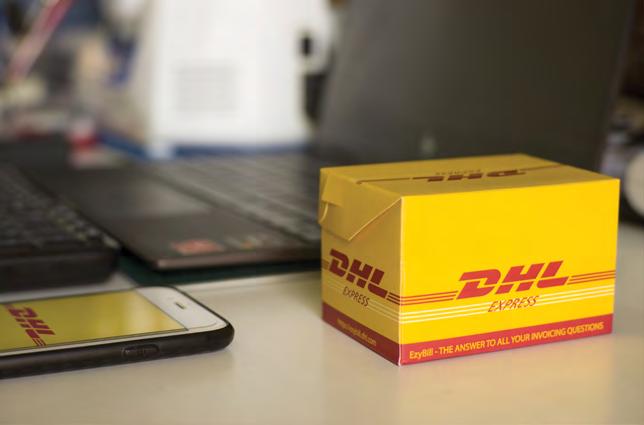
24 | LOGISTICS NEWS ME | MAY 2024 WWW.CBNME.COM
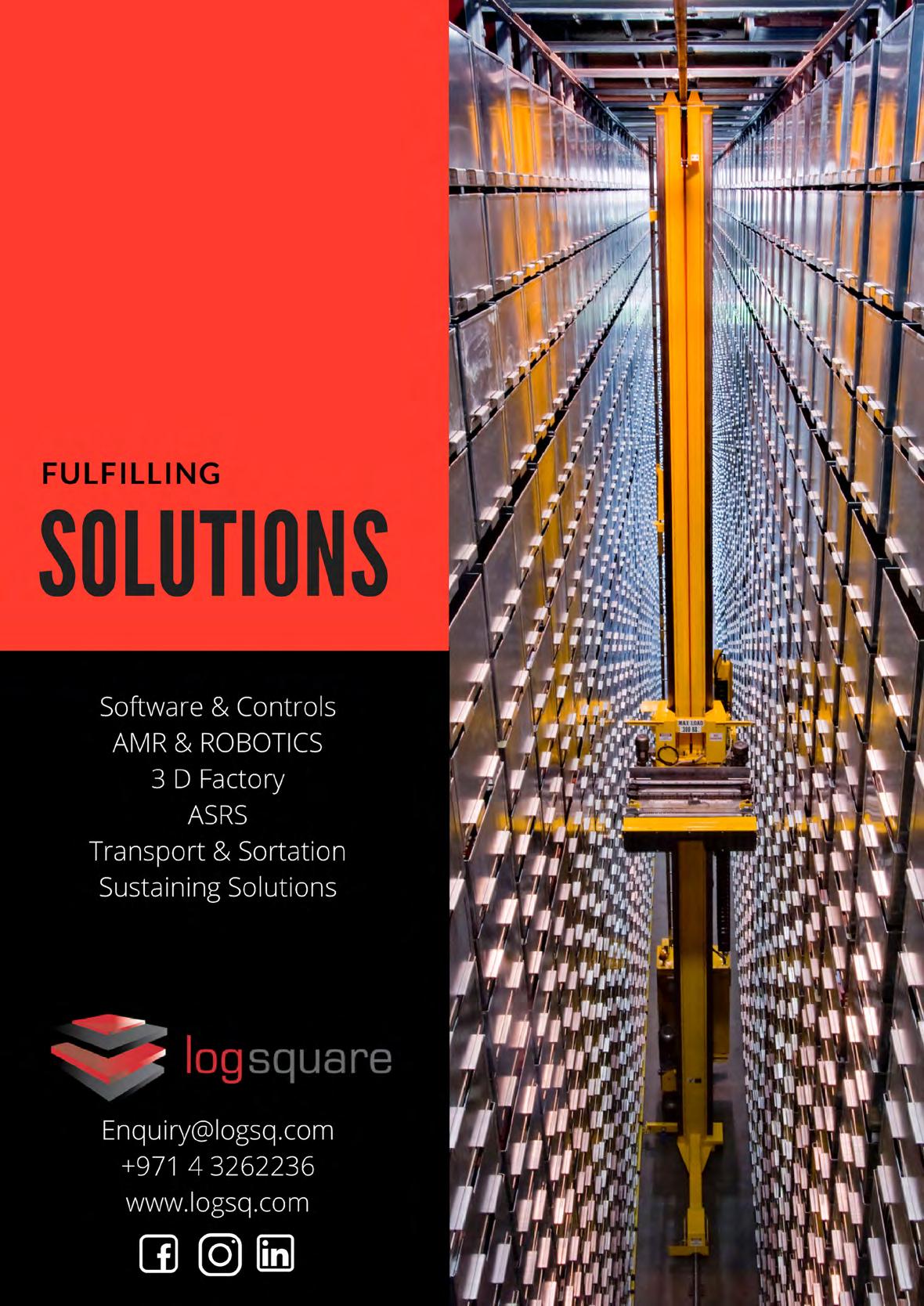
#CEO INSIGHTS
In conversation with LNME, Pieter Feenstra, CEO EMEA, focuses on Addverb’s charting success…
Established in 2016, Addverb is a global leader in robotics and automation, operating across India, North and South America, South-East Asia, Europe, the Middle East, and Australia. Specializing in industrial robot technology and automated warehousing systems, the company offers solutions aimed at enhancing material flow management. Their comprehensive services, spanning discovery, design, deployment, and ongoing support, have benefited numerous clients including Hindustan Unilever Limited, PepsiCo, the CocaCola Company, Marico, Johnson & Johnson, and ITC Limited.
Addverb boasts a diverse product

lineup, comprising both fixed and flexible automation systems including Autonomous Mobile Robots, Sorting Robots, Automatic Storage and Retrieval Systems, and Picking Technologies. Supported by enterprise software, these offerings enable the company to deliver unique and tailored solutions to its clientele.
Pieter Feenstra’s journey in warehouse automation spans decades, beginning
as a project engineer at Swisslog and culminating in executive roles across Europe and Australia. With over 30 years of experience at Swisslog, he later transitioned to Körber Supply Chain, serving as CEO in various locations including Portugal, Germany, and the USA. In 2022, Pieter embarked on a new chapter, joining Addverb to spearhead its expansion across the EMEA region. While headquartered in the Netherlands, Addverb also boasts
LNME AUTOMATION
26 | LOGISTICS NEWS ME | MAY 2024 WWW.CBNME.COM
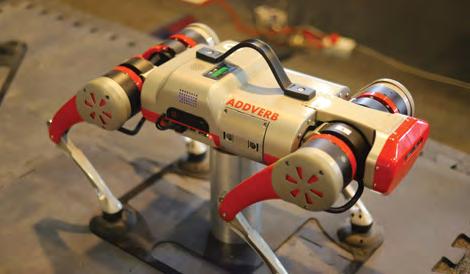
a strong presence in the UAE, reflecting its global reach and commitment to innovation in automation.
Standing Out!
Addverb stands out in the industry by consistently pushing the boundaries of innovation and prioritizing customer satisfaction. What sets them apart is their unique ability to offer a diverse range of solutions, from traditional fixed automation like conveyors and cranes to cutting-edge flexible automation like Autonomous Mobile Robots (AMRs) and Sorting robots. Unlike competitors who focus solely on specific products, Addverb delivers comprehensive solutions that seamlessly integrate both fixed and flexible automation, all managed by their proprietary software suite. This holistic approach ensures that clients receive tailored solutions that address their specific needs while maximizing efficiency and productivity.
What’s Trending?
In the modern manufacturing arena, the drive for enhanced efficiency, speed, and safety in fulfillment processes has prompted the integration of state-of-the-art technologies. Within this realm of innovation, Collaborative Robots, or cobots, emerge as game-changers spanning various industries. Unlike their autonomous counterparts, cobots are specifically engineered to operate alongside humans, elevating productivity and accuracy with human-assisted assistance. This collaborative paradigm shift is reshaping manufacturing practices, presenting a distinctive combination of efficiency, safety, and ease of use.
Another emerging trend in warehouse automation is the 4-Way Shuttle ASRS, which is transforming operations with its remarkable efficiency. This system optimizes storage density by ingeniously utilizing vertical space, accommodating as many as 10 pallets per square meter. Its adaptability and versatility enable smooth movement along both horizontal and vertical axes, catering to the evolving requirements of warehouses.
Innovating At It’s Best
Pieter emphasizes that at Addverb, innovation isn’t just an
idea—it’s the driving force that defines its essence. With an unwavering dedication to breaking boundaries, Addverb emerges as a leader in robotics and logistics advancement. This relentless pursuit of excellence permeates every aspect of the company, propelling it to the forefront of industry innovation.
Addverb diligently assesses innovative concepts, weighing their potential impact and development trajectory. Short-term initiatives promptly address market demands, exemplified by groundbreaking products like the 4-Way Shuttle ASRS, revolutionizing warehouse automation with its unparalleled efficiency and adaptability.
Simultaneously, Addverb strategically invests in long-term ventures such as Heal, a medical robot tailored for healthcare applications, capitalizing on emerging trends for future opportunities. Recent introductions like Trakr and Cobots demonstrate Addverb’s balanced strategy, showcasing both immediate and forward-thinking innovations. Trakr, India’s leading Assistive Dog robot, excels in facility inspections, while Cobots redefine workplace collaboration with their advanced functionalities.
Addverb’s approach to innovation entails strategic decisionmaking that aligns short-term market needs with long-term growth objectives. This dedication positions Addverb as a leader in innovation, catalyzing significant change across various sectors.
Challenges
While robots and industrial automation have brought significant changes, their widespread use poses challenges and opportunities. Traditional warehouses struggle to manage large inventories amid diverse customer preferences and increasing demands for faster delivery. Addverb tackles these issues by incorporating advanced picking and sorting systems like Pick-to-Light technology, enhancing flexibility and meeting shorter delivery deadlines efficiently.
Moreover, state-of-the-art tracking solutions such as RFID and IoT-enabled sensors provide real-time visibility into perishable

#CEO INSIGHTS
LOGISTICS NEWS ME | MAY 2024 | 27
inventory, reducing losses. Maximizing storage capacity in warehouses with limited space remains crucial. Addverb achieves this through automated storage and retrieval systems like carton shuttles and robotic picking technologies, ensuring optimal efficiency while utilizing space effectively.
To combat labor shortages, Addverb strategically deploys automation solutions, especially in existing facilities. The use of autonomous mobile robots (AMRs) and Robotic Sortation provides immediate relief, particularly in sites with severe labor shortages. By utilizing AMRs and Robotic Sortation, warehouses experiencing labor constraints can achieve smoother material flow and increased productivity.
A Sustainable-Better Future
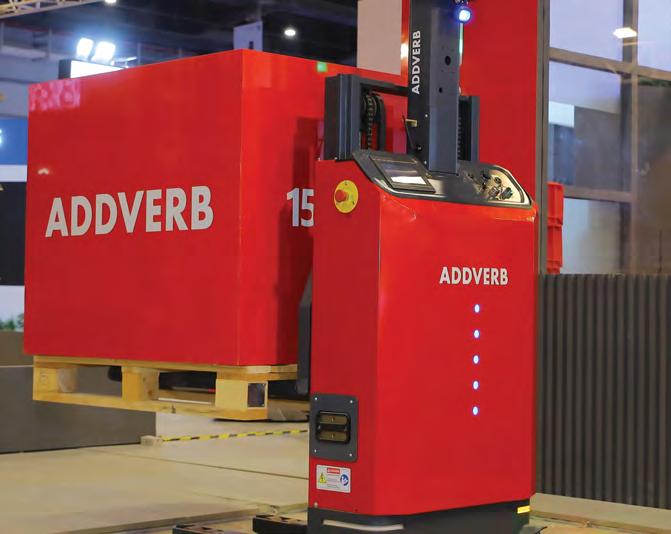
At Addverb, sustainability is deeply ingrained in their operations, going beyond mere corporate initiatives to become a fundamental value. Through their innovative strategy called ‘Technological Ecology,’ they harness advanced software and hardware solutions to transform industry practices while reducing environmental harm. Their range of solutions, from digital twin technology to AI-based resource management, emphasizes energy efficiency and operational excellence.
This commitment to sustainability extends to their supply chain and production methods, focusing on recyclable materials and maintaining high procurement standards. Embracing lean manufacturing principles, they aim to minimize resource wastage and optimize utilization across all production stages.
In the fight against climate change, they take proactive steps to decrease greenhouse gas emissions by adopting solar power and implementing energy-efficient technologies. Sustainability remains a central pillar of their mission as they persist in innovating responsibly for the future. They strive to shape a future where sustainability and prosperity are seamlessly intertwined.
Future Goals
Looking forward, Addverb’s strategic vision is firmly set on the EMEA region, with a targeted approach toward Retail/Ecommerce and FMCG & Manufacturing sectors. In the realm of Retail/E-commerce, their focus revolves around optimizing crates/carton handling and piece picking, complemented by robotic sortation solutions tailored for distribution centers. Meanwhile, within the FMCG & Manufacturing domain, their attention centers on enhancing pallet handling and case picking processes. In terms of geographical expansion, Addverb sets its sights on the northern half of Europe and the Middle East (GCC), recognizing these regions as pivotal growth markets. With a foothold already established in the UAE, their roadmap includes venturing into Saudi Arabia, acknowledging its status as the largest and fastest-growing market in the GCC.
To extend its influence and improve client support, Addverb is focused on fortifying its network of partners. This entails forging alliances in areas where it currently lacks presence, like southern Europe, and teaming up with chosen solution providers to deliver customized offerings. Through these strategic endeavors, Addverb is positioned to broaden its scope and provide inventive solutions that align with the changing needs of the EMEA market.
LNME AUTOMATION
28 | LOGISTICS NEWS ME | MAY 2024 WWW.CBNME.COM
Expertise in the Aerospace Logistics

Origin & Destination Services in 150+ Countries
Surface Transportation in 06 Continents
Warehousing and Quality Control
Aircraft Parts Movement Engine Movements AOG Services Time Critical Movements Airside Deliveries 24/7 Operations Service Cargo On Board Courier Charter Logistics Dangerous Goods Handling Multiple Control Towers
www.

GUARDIANS OF THE TRANSIT REALM
Dmitry Darensky, Head of Positive Technologies’ Industrial Cybersecurity Practice, highlights the significance of cybersecurity in the transportation industry…
In the ever-evolving world of logistics, Dmitry Darensky sheds light on the critical role of cybersecurity. With vast volumes of sensitive data traversing the industry’s digital highways, safeguarding against cyber threats becomes paramount. Any breach in this fortress of security could spell disaster, from compromised privacy to financial havoc and shattered customer trust. The digital transformation sweeping through logistics only amplifies the urgency. As vehicles and operations become increasingly intertwined with software and connectivity, they become vulnerable targets for cyber predators. Beyond mere data loss, these breaches put lives at risk, turning the digital battlefield into a matter of life and death.
Correspondingly, Dmitry highlights a spectrum of threats looming over the logistics landscape. Among these, phishing emerges as a cunning tactic, seeking to breach corporate fortresses through deceit. Then there’s the ominous spectre of ransomware, holding data hostage until a hefty ransom is met. Supply chain attacks, akin to stealthy infiltrators, exploit one chink in the armour to infiltrate the entire network. Yet, the most insidious threat lurks from within, as unauthorized access and clandestine sensitive data leaks pose a growing menace.
In navigating the complex realm of cybersecurity, logistics companies must adhere to foundational principles to safeguard their operations and data integrity. The imperative of crafting a robust cybersecurity strategy is at the forefront, intricately woven with measurable business security outcomes. This blueprint serves as a guiding beacon, steering companies towards resilience in the face of evolving threats. Complementing this strategy is establishing an integrated incident
LNME CYBERSECURITY
30 | LOGISTICS NEWS ME | MAY 2024 WWW.CBNME.COM
response system akin to a vigilant guardian ready to combat breaches and intrusions. Ensuring the fortification of network infrastructure forms another cornerstone, fortifying the digital ramparts against external incursions.
Moreover, the commitment to regular software updates protects against vulnerabilities, reinforcing the digital bulwark with each patch. Equally vital is cultivating a cyber-savvy workforce through comprehensive training initiatives, empowering personnel to navigate the digital landscape confidently. Embracing multi-factor authentication emerges as a formidable defence, erecting multiple layers of security to safeguard system and data access. Finally, implementing encryption measures is a sentinel, shrouding sensitive data in a cloak of inviolable protection. Together, these principles form the bedrock upon which logistics companies fortify their cyber defences, ensuring resilience and reliability in an ever-evolving digital frontier.
Within the dynamic realm of transportation, cybersecurity emerges as a stalwart guardian, safeguarding the intricate tapestry of routes, cargo, and vehicles that constitute the industry’s lifeblood. Beyond mere data protection, cybersecurity is pivotal in upholding IT infrastructure’s cyber resilience and fortifying the digital ramparts against intrusions and disruptions. Through a meticulously crafted web of security protocols, the transportation sector shields vital information about routes and cargo from prying eyes, preserving the integrity of logistical operations.
Additionally, in an age where vehicles are increasingly entwined with electronic control systems, cybersecurity assumes an even greater significance, shielding against unauthorized access that could imperil vehicles and occupants. By fostering a climate of cyber vigilance and
resilience, cybersecurity safeguards against potential accidents and ensures uninterrupted business operations, charting a course towards a safer, more secure transportation landscape.
In his discourse on emerging trends, Dmitry unveils a landscape brimming with innovation and resilience, where specialized solutions stand as stalwart guardians of the connected car ecosystems and the realm of autonomous vehicles. In this era of digital evolution, the industry’s quest for fortified defences finds expression in the realm of encryption, where the quest for enhanced security in data transmission between connected devices and logistical infrastructure takes centre stage. Moreover, a palpable desire resonates within companies to pioneer a suite of technologies and solutions, heralding an era where automation reigns supreme, potentially ushering in the era of robotized incident detection and response processes.
Looking ahead, the horizon brims with formidable challenges, from fending off the relentless onslaught of
advanced persistent threats (APTs) to navigating the labyrinthine complexities of ever-evolving cyberattacks. As one ventures into the digital frontier, the emergence of novel perils looms large, encompassing potential assaults on autonomous transportation systems and the insidious spread of malware through the vast interconnected web of the Internet of Things (IoT). Amidst this technological tumult, the imperative remains clear: seamlessly integrating groundbreaking innovations while safeguarding data’s sanctity.
To surmount these trials, enterprises must embrace a twofold approach, investing in state-of-the-art threat detection technologies while fortifying their defences through ongoing security updates. Moreover, empowering employees with comprehensive cybersecurity training and fostering a culture of vigilance and resilience is paramount. Yet, the most pivotal strategy lies in forging strategic alliances with specialized cybersecurity organizations, fortifying the bulwarks of cyber defence through collaborative endeavours.

GUARDIANS OF THE TRANSIT REALM LOGISTICS NEWS ME | MAY 2024 | 31

FROM PARCEL TO PACKAGE
In the dynamic realm of last-mile logistics, we find ourselves amidst a profound transformation marked by a wave of impactful trends reshaping delivery dynamics. Dhruvil and I wasted no time delving into a spirited discussion on these emerging trends, each poised to wield a transformative influence over the logistics landscape.
At LogiNext, they aren’t merely observing but spearheading the movement. An emerging trend making waves is the advent of pop-up or urban warehouses. These strategically located hubs transform delivery logistics by placing products closer to consumers, slashing delivery times by as much as 30%. This tactical proximity optimization significantly boosts their capacity to meet customer needs swiftly and effectively.
Next, there’s the progression of delivery techniques. The sector is moving
towards hybrid delivery approaches, blending conventional methods with advanced technologies like drones, electric vehicles, autonomous vehicles, and human deliveries. “This diversified approach allows us to optimize routes, minimize emissions, and enhance delivery speed, although the effectiveness of these methods still requires further validation,” shares Dhruvil Sanghvi, Founder and CEO of LogiNext.
Dhruvil highlights Artificial Intelligence as a pivotal factor in revolutionizing the last-mile sector. Beyond mere number crunching, AI now facilitates intelligent decision-making. Through AI-driven analytics and reporting, companies can analyze extensive datasets, forecast trends, optimize delivery routes, and anticipate customer preferences. Collaboration is also a prominent trend, especially in third-party logistics (3PL). Companies are fostering deeper alliances with carriers, emphasizing
synergy to streamline operations and boost efficiency. By capitalizing on the strengths of their 3PL partners, they provide a seamless end-to-end experience for customers.
Lastly, hyper-personalization is becoming the new norm in deliveries. Customers today crave more than just a package at their doorstep; they want personalized experiences. Whether choosing a specific delivery time, customizing packaging, or personalizing the delivery vehicle, every detail counts. He adds, “Research indicates that personalized experiences can boost sales by up to 20%, underscoring the importance of customer-centric approaches.”
In collective harmony, these trends illustrate a vibrant evolution within the last-mile sector, marked by agility, data-driven strategies, and an unyielding dedication to customer satisfaction. Positioned as a leader in this transformative journey, LogiNext adeptly utilizes these shifts to enhance its delivery capabilities, ensuring unparalleled customer experiences.
Like any journey of evolution, progress often brings forth its own set of obstacles, serving as markers of growth. Similarly, the last-mile delivery domain presents its unique array of challenges, yet at LogiNext, they stand resolute in their commitment to address these hurdles with ingenious solutions. Dhruvil explains, “Take traffic congestion, for instance. It’s a pervasive issue in urban delivery operations, but our route optimization algorithms act as traffic heroes, orchestrating efficient routes that navigate congested streets seamlessly. This capability ensures timely deliveries even in the busiest environments, enhancing customer reliability.”
Let’s delve into the realm of costs. The expenditures involved in last-mile logistics can profoundly influence profitability, but LogiNext’s unwavering dedication to efficiency is
LNME LAST MILE
Vibha Mehta traces the evolution of delivery methods with Dhruvil Sanghvi, Founder & CEO of LogiNext
32 | LOGISTICS NEWS ME | MAY 2024 WWW.CBNME.COM
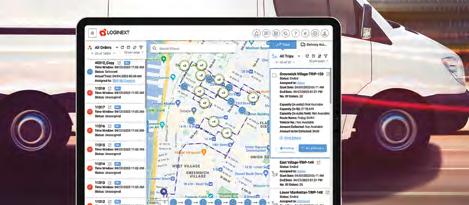
the secret sauce for unlocking substantial savings for their clients. Through fine-tuning operations, optimizing routes, and astutely managing resources, they arm businesses with the tools to amplify efficiency and slash costs without skimping on service excellence. Their overarching mission? To deliver unparalleled value while equipping their clients to stay ahead of the curve in a fiercely competitive market.
“Customer expectations are another area where we are making strides. Today’s customers demand transparency, reliability, and convenience in their deliveries. Our real-time tracking and visibility solutions meet these expectations head-on. We provide customers with the visibility they crave, keeping them informed throughout the delivery process and enhancing their overall experience with us,” he continues.
LogiNext doesn’t merely acknowledge the hurdles in the lastmile delivery arena; it embraces them as opportunities for purposeful innovation. Its aim? To craft solutions that not only surmount challenges but also redefine the benchmarks of excellence within the industry. With a proactive mindset and a passion for pushing boundaries, it’s charting a course towards a future where obstacles become stepping stones to success.
When discussing LogiNext’s approach to digital transformation, Dhruvil sheds light on how they utilize technology to revolutionize their operations. He points out the following:
• Advanced Route Optimization: Leveraging AI-powered algorithms to optimize delivery routes, minimizing fuel consumption and enhancing efficiency.
• Real-Time Tracking and Visibility: Get real-time visibility into delivery operations, enabling proactive decision-making and enhancing customer satisfaction.
• Integration Marketplace: Easy integration with 3rd Party solutions ensuring seamless connectivity and data exchange across platforms.
• Epod: Helps digitize proof of delivery processes, reducing paperwork, enhancing accuracy, and expediting billing cycles.
• Automated Order Assignment: This system automates order assignment based on real-time data inputs, optimizing resource utilization and minimizing manual intervention.
• Reports and Analytics: Generate comprehensive reports using predictive analytics, enabling data-driven decisionmaking and proactive management of logistics operations.
• Driver Mobile App: This app provides mobile solutions for drivers and field personnel, facilitating seamless
communication, task management, and data capture on the go.
• Customer Experience Enhancements: LogiNext employs customer-centric technologies such as delivery notifications, live tracking, and personalized delivery options to elevate the overall customer experience.
Moving to sustainability, Dhruvil adds, “Sustainability isn’t just a buzzword now; it’s a fundamental principle guiding our approach at LogiNext. We understand the critical role logistics plays in the larger environmental context, and we’re committed to making a positive impact through our solutions and operations.”
Examining LogiNext’s route optimization algorithms extends beyond mere time and cost savings. These algorithms prioritize efficiency and sustainability by actively reducing fuel consumption and emissions through strategic delivery route planning. Their trip planning feature further contributes to environmental conservation by consolidating shipments and optimizing vehicle capacity, minimizing unnecessary miles travelled and reducing clients’ carbon footprint.
Emphasizing the power of data-driven strategies, LogiNext’s analytics tools provide invaluable insights into logistics operations, enabling clients to identify areas for improvement and make informed decisions that drive sustainability. From reducing mileage to preventing shipping damage, LogiNext champions environmentally conscious practices rooted in data-driven solutions. Lastly, looking ahead to LogiNext’s main goals in the next few years, Dhruvil shares that the next period will be centred around innovation, growth, and ensuring customer success. “Expansion is the key focus. As the demand for efficient logistics increases, we aim to expand our presence in new markets and industries,” he says.
This entails establishing strategic alliances with prominent firms in burgeoning markets and expanding their presence in established sectors. The objective is to position LogiNext as the preferred ally for enterprises aiming to streamline their logistics processes. But it’s not just about expansion; it’s also about continuous evolution. We’re constantly pushing the boundaries of what’s possible in logistics technology, and we’ve got some innovative features in the pipeline. Whether leveraging artificial intelligence for smarter logistics operations or utilizing the power of data analytics for actionable insights, we’re constantly exploring new ways to drive efficiency and effectiveness across the supply chain.
“And, of course, our ultimate goal remains customer success. We measure our success by the success of our clients, and we’re dedicated to helping them achieve their goals every step of the way. Whether it’s improving operational efficiency, enhancing customer satisfaction, or driving ROI, we’re here to make a real difference in the lives of our customers,” concludes Dhruvil.
FROM PARCEL TO PACKAGE
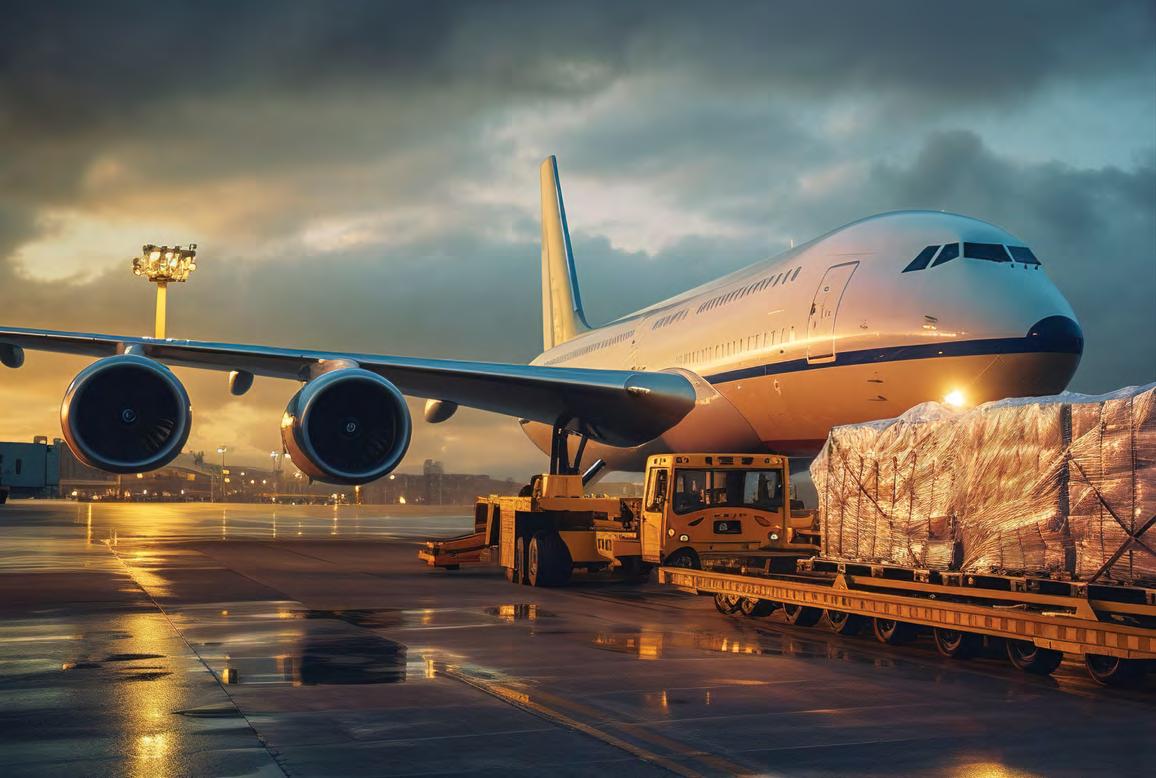
NAVIGATING TURBULENT SKIES
How Air Cargo Companies Brave Uncertainties?
Words by: Vibha Mehta
Air cargo firms serve as indispensable conduits in the ever-evolving realm of worldwide trade, bridging the gap across expansive distances. Yet, their endeavours frequently encounter a spectrum of uncertainties, such as navigating through hurricanes, dealing with
sudden changes in customs regulations, or managing the impact of political unrest on flight routes. Here, we explore the ingenious tactics adopted by air cargo entities to confront these challenges head-on, safeguarding the seamless and effective conveyance of merchandise.
LNME COVER
34 | LOGISTICS NEWS ME | MAY 2024 WWW.CBNME.COM
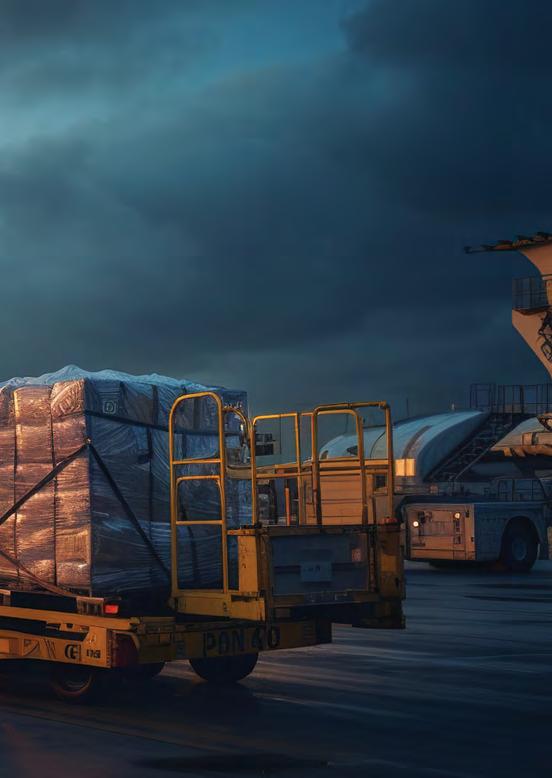
As we know, air cargo is the linchpin of global trade, offering unmatched speed, reliability, and flexibility in transporting goods. Ensuring timely delivery is crucial for businesses and consumers, particularly today’s fast-paced world. Air cargo bridges geographical gaps with precision and efficiency, from perishable items to urgent medical supplies. In the intricate web of supply chains, it serves as the lifeline, facilitating seamless transactions and meeting the demands of
international trade. With its ability to transcend borders and deliver goods swiftly, air cargo is a cornerstone of the modern economy.
In my journey through the intricate realm of covering global logistics, I have understood the delicate balance between anticipation and adaptation that defines the world of air cargo transportation. In the high-stakes world of air cargo logistics, resilience becomes more than just a business strategy—it’s
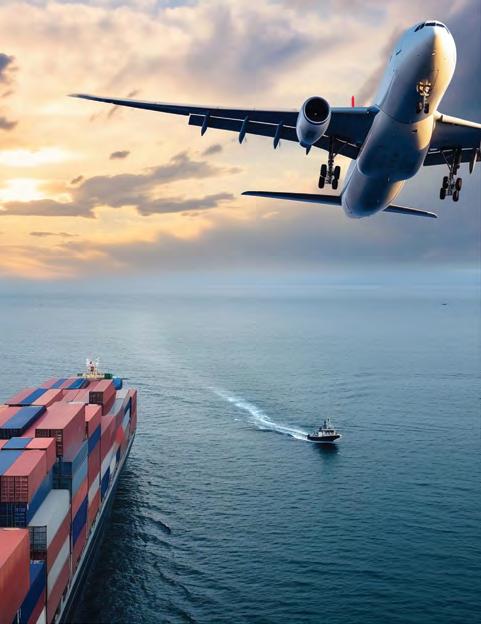
a way of life. Every day presents a new challenge, a new obstacle to overcome. Whether it’s the whims of Mother Nature or the complexities of geopolitical tensions, uncertainties are ever-present, lurking around every corner.
In the dynamic world of air cargo transportation, customer-centricity isn’t just a slogan—it’s the heartbeat that pulses through every operation. As air cargo companies navigate through the stormy seas of uncertainties like adverse weather conditions, airspace restrictions, and geopolitical conflicts, they’re not just seeking to survive; they’re determined to thrive by placing customer
satisfaction squarely at the helm. In moments like these, the true mettle of air cargo companies is put to the test. It’s a test of agility, preparedness, and resilience in adversity. And in these moments, the dedication to the craft shines brightest. They adapt, innovate, and find a way to deliver, no matter the obstacles. For instance, some companies have implemented realtime tracking systems to provide customers with accurate delivery updates, while others have developed contingency plans that allow for quick rerouting of shipments in the event of airspace restrictions. Because in the end, it’s not just about moving goods from point A to point B—
NAVIGATING TURBULENT SKIES
LOGISTICS NEWS ME | MAY 2024 | 35

it’s about overcoming the challenges that stand in the way and emerging more substantial on the other side.
Picture this: a looming storm threatens to disrupt a carefully orchestrated supply chain. But armed with cuttingedge weather forecasting technologies, one stands ready to anticipate and mitigate its impact. With each passing minute, a team springs into action, adjusting flight schedules, rerouting shipments, and fortifying the defences against nature’s fury.
Yet, nature is only half the battle. Geopolitical tensions and airspace restrictions add another layer of complexity to the journey. Here, a diverse network of routes and partnerships truly shines, offering one the flexibility to navigate even the most turbulent territories with confidence.
When the unexpected does occur—
as it inevitably does—the air cargo champions are not caught off guard. Contingency plans kick into high gear, mobilizing teams and resources to ensure that disruptions are minimized and deliveries remain on track.
While speaking to Rajesh Menon –Regional Head of Cargo for South Asia, Middle East, and Africa for Cathay Cargo, he explained how when COVID-19 swept across the globe, disrupting transportation networks and causing chaos in supply chains, the importance of air cargo soared to new heights. In this turbulent landscape, Cathay Cargo emerged as a beacon of resilience, navigating the stormy seas with unwavering determination and a steadfast commitment to serving customers while safeguarding the health and well-being of all involved. Through a blend of innovative strategies and tireless dedication, Cathay Cargo has
kept its operations running smoothly and emerged as a shining example of how adaptability and compassion can conquer even the most daunting challenges.
As someone deeply immersed in covering the world of air cargo operations, I have witnessed firsthand the transformative power of innovation. From cutting-edge drones to stateof-the-art robotics, technology is revolutionizing how one approaches logistics, making operations more resilient, efficient, and sustainable.
Artificial intelligence is also pivotal. It analyzes vast amounts of data to optimize routes, minimize fuel consumption, and enhance safety and security. It’s like having a virtual co-pilot by their side, guiding them through the complexities of modern air transportation. For instance, AI-powered algorithms can predict weather patterns and suggest the most fuel-efficient flight paths, reducing both costs and environmental impact. This is just one example of how technology is revolutionizing the air cargo industry, making it more efficient, sustainable, and resilient.
“We at Cathay Cargo have taken significant strides in bringing automation and enhanced shipment visibility to postal shipments with our new service, Cathay Mail. By leveraging advanced technologies and automation and recognising the continued rise in preference for online shopping, Cathay Mail streamlines the processing of postal shipments, offering a seamless and efficient experience for customers,” comments Rajesh Menon – Regional Head of Cargo for South Asia, Middle East, and Africa for Cathay Cargo.
And let’s remember sustainability. As stewards of the environment, air
LNME COVER
36 | LOGISTICS NEWS ME | MAY 2024 WWW.CBNME.COM
MR. RAJESH MENON, Regional Head Cargo - South Asia, Middle East and Africa, Cathay Pacific Airways
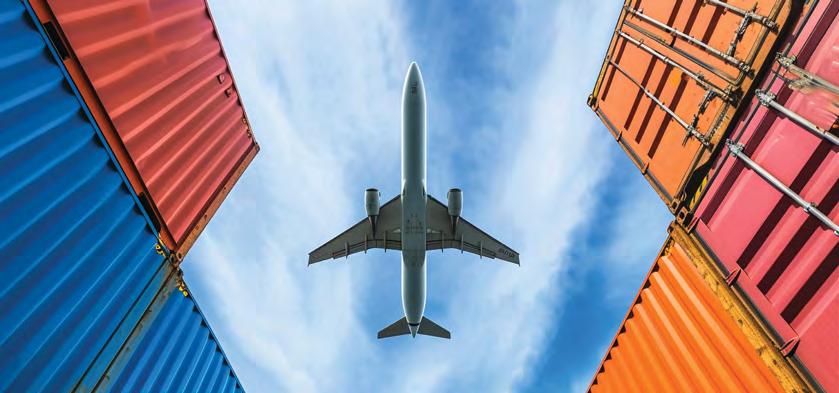
cargo companies embrace eco-friendly practices to minimize their carbon footprint and promote responsible logistics. From investing in electric vehicles to implementing renewable energy solutions, they are committed to positively impacting the planet for generations to come.
Innovation isn’t just a buzzword—it’s a new life. As one continues to push the boundaries of what’s possible, I’m excited to see how technology will shape the future of air cargo operations, making our skies safer, more efficient, and more sustainable than ever.
Additionally, under the guidance of Vice President of Cargo Stanislas Brun, Etihad Cargo has crafted a focused strategy to address industry challenges by prioritizing customer
needs and harnessing the power of technology and partnerships. Stanislas outlines the company’s method: “Our plan revolves around putting our customers at the centre of our expansion efforts. This involves substantial investments in our physical and technological infrastructure to boost our cargo management capabilities.”
This approach underscores the importance of exceptional customer service and highlights Etihad Cargo’s dedication to employing innovative solutions to overcome the industry’s intricacies. Stanislas notes, “Ensuring the safety and security of our customers’ interests is paramount. We proactively address potential geopolitical tensions and severe weather disruptions
through cutting-edge technology and solid operational strategies.”
Air cargo companies are proactively navigating the uncertain tides of their industry with a clear
emphasis on understanding and prioritizing the needs of their customers. By integrating advanced technological solutions and solidifying their operational frameworks, they effectively safeguard their services against geopolitical instability and extreme weather disruptions. These efforts underscore a commitment to maintaining service quality and fostering deep trust and reliability among their clientele. As they invest in these areas, air cargo companies are not merely reacting to immediate challenges but strategically paving the way for sustained growth and stability, demonstrating a resolute dedication to their customers’ success and security.
 Vice President
Vice President
NAVIGATING TURBULENT SKIES
LOGISTICS NEWS ME | MAY 2024 | 37
STANISLAS BRUN,
of Cargo, Etihad Cargo
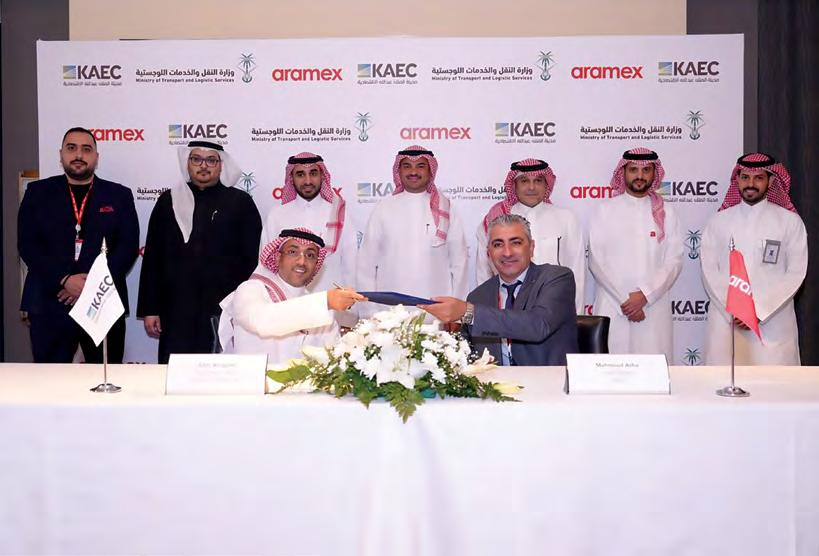
THE ECONOMIC CITY SIGNS AGREEMENT WITH ARAMEX TO ADVANCE LOGISTICS SUSTAINABILITY IN KAEC EMAAR
Under this agreement, Emaar, The Economic City and Aramex will implement cutting-edge, sustainable logistics solutions to minimise environmental impact and improve operational efficiency
Emaar, The Economic City, the master-developer of King Abdullah Economic City (KAEC), has signed an agreement with Aramex, a leading global provider of comprehensive logistics and transportation solutions, to implement
sustainable and value-added logistics solutions in KAEC to minimise environmental impact and enhance operational efficiency.
The agreement was signed by Sami Al-Najrani, Chief Operating Officer and Advisor to the Chairman, KAEC;
and Mahmoud Asha, General Manager for Western Region, Aramex, on behalf of Mr. Abdulaziz Abdullah Al Nuwaiser, the General Manager, during a ceremony attended by numerous renowned personalities. Rayan Albakri, Deputy Minister of Logistics Services at the Ministry of Transport and Logistic Services; Mazen AlSaleh, Vice Secretary General – Economic Cites at Economic Cities and Special Zones Authority (ECZA); and Mansour Al Salem, the Managing Director of Emaar, The Economic City, attended this ceremony.
By adopting a phased approach, both parties will implement various innovative logistics solutions in multiple phases, with phase 1 entailing the deployment of Aramex Bot deliveries in selected areas, such as Baylasan and Marina Areas, which will allow the introduction of diverse technologies. This will contribute to enabling maximum convenience, enhancing operational speed and efficiency, reducing cost, as well as driving sustainability.
The agreement further includes numerous provisions, all of which are aimed at paving the way for green logistics within KAEC, emphasising its commitment to fostering innovation and sustainability. It provides numerous benefits for all the stakeholders involved, including improved environmental sustainability and enhanced logistical capabilities. The first multi-compartment robot used for logistics operations, custom-designed by Aramex through the support of its partner Ottonomy, allows for multiple
LNME
38 | LOGISTICS NEWS ME | MAY 2024 WWW.CBNME.COM
ECONOMIC CITY
deliveries per trip, thus optimizing overall operations and paving the way for cheaper delivery costs. Moreover, robot deliveries follow optimal routes, avoid traffic and manoeuvre through congested urban areas with minimal disruption, significantly improving delivery speed and efficiency.
In addition, since Bots are electrically powered and emit zero emissions, their integration would substantially lower carbon footprints. Through the flexibility of scaling up and down the Bot fleet, it can additionally adapt to both peak and off-peak seasons. It also complies with traffic regulations with the use of advanced sensors and algorithms to efficiently identify obstructions and prevent collisions.
Mansour Al-Salem, Managing Director of Emaar, The Economic City, said: “We are pleased to sign this agreement with Aramex, a leading courier firm in the Middle East. We are confident that this strategic alliance will contribute to achieving the goals of the Saudi Vision 2030, which serves as a blueprint for fostering sustainability and innovation. Furthermore, this agreement marks a significant stride towards advancing green logistics within KAEC as well as reflects our steadfast commitment to reducing environmental impact and fostering sustainability. We seek to implement a variety of eco-friendly logistics solutions under this agreement, particularly Bot deliveries, which would be implemented for the first time in KSA.”
KAEC, places a high priority on reducing waste, leveraging green technologies and
minimising carbon emissions. Shipping and transportation both contribute to pollution and environmental harm, and sustainable logistics help mitigate these effects. Utilising eco-friendly fuels, following better routes and using cleaner vehicles, in line with Saudi Arabia’s Vision 2030, will assist in this mission. Bot deliveries by Aramex minimise carbon footprints as they operate entirely on electricity and produce zero emissions.
Abdulaziz Abdullah Al Nowaiser, General Manager of Aramex, said: “We are keen to provide our ecofriendly solutions, paving the way for sustainable logistics in KAEC, as part of our strategic alliance with Emaar and The Economic City. We at Aramex are dedicated to promoting innovation and implementing ecofriendly solutions that improve our
logistical capabilities and reduce the impact of our operations on the environment. We aim to employ these capabilities, along with our cutting-edge solutions, to support KAEC’s objective of providing valueadded, eco-friendly logistics services to its residents as well as contribute to Saudi Arabia’s Vision 2030 of transforming the logistics industry.”
With ambitious goals, Saudi Arabia seeks to transform into an ecologically friendly country as well as become a leader in sustainable development. Several initiatives that promote smart, sustainable and digital development have been carried out by the country in an effort to usher into a new era of prosperity and expansion. To contribute to Saudi Arabia’s mission for sustainability, KAEC has initiated several green activities and initiatives.

TO ADVANCE LOGISTICS SUSTAINABILITY IN KAEC LOGISTICS NEWS ME | MAY 2024 | 39
EMAAR, THE ECONOMIC CITY SIGNS AGREEMENT WITH ARAMEX
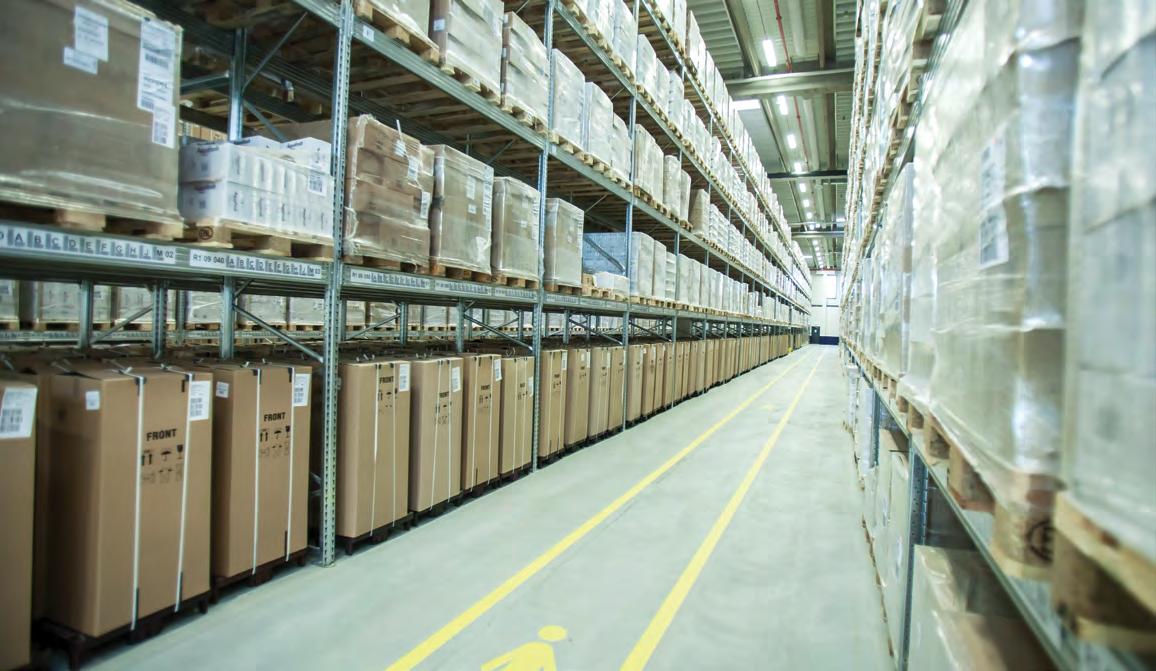
NAVIGATING GLOBAL FRONTIERS
Bilal Yasin Talgharkar, Regional Key Account Manager, Solutions, MENA, DSV, sheds light on DSV’s dynamic role in transforming and powering global trade
DSV, a Danish enterprise established in 1976, boasts a global presence, with its headquarters nestled in Hedehusene, near Copenhagen, Denmark. Operating in over 80 countries, DSV is powered by a workforce exceeding 75,000 individuals and maintains collaborative ties with partners and agents worldwide. Organized into three divisions—Road, Air & Sea, and Solutions—DSV caters to diverse industries, including Healthcare, Oil & Gas, FMCG,
Fashion & Retail, Automotive, Technology, and Industrial sectors, offering comprehensive transport and logistics solutions on a global scale.
Striving to pioneer a sustainable path for the industry, DSV envisions trading in harmony with nature’s rhythms. Embracing dynamism, we champion inclusivity and diversity within our organization. Operating with unwavering integrity, DSV upholds the values of cultural respect and individual dignity, honouring the rights of all.
LNME SOLUTIONS
40 | LOGISTICS NEWS ME | MAY 2024 WWW.CBNME.COM

TRENDS
In recent years, the healthcare logistics sector in the region has experienced consistent advancement and is projected to continue expanding between 2024 and 2030, with an expected compound annual growth rate (CAGR) of 5-6%.
Healthcare Logistics Market Trends:
Demand for Cold Chain Logistics:
The need for cold chain logistics involving transporting and storing temperature-sensitive goods has surged significantly. This sector, known for its sensitivity and complexity, is witnessing heightened demand due to increased requirements for temperature-sensitive vaccines, biopharmaceuticals, and other healthcare products. Ensuring strict temperature control throughout the supply chain is essential to maintaining product effectiveness and safeguarding patient well-being. Consequently, there is a growing necessity for specialized refrigeration systems, packaging materials, and monitoring technologies to meet these demands.
Quality Standards and Regulatory Compliance
Compliance with quality standards and stringent regulatory requirements becomes the highest priority in healthcare logistics. Implementing a robust (QMS) Quality Management System and adherence to Good Distribution Practice (GDP) is imperative to ensure product safety, integrity, and the quality of transported goods.
Patient-Centric Logistics
A patient-centric approach fosters trust and collaboration between patients and healthcare providers. There is an increasing call for patient-centric care, prompting organizations to prioritize healthcare logistics solutions tailored to patient needs. These solutions, such as home healthcare delivery, personalized medicine, and last-mile delivery services, aim to enhance patient outcomes while improving accessibility and convenience.
Sustainability
Environmental sustainability is gaining significance in healthcare logistics. Major industry players are emphasizing reducing physical and financial waste, streamlining distribution routes, and lowering carbon emissions to lessen environmental impact. This entails adopting green logistics solutions, using eco-friendly packaging materials, and employing energy-efficient transportation vehicles.
Technology Integration
Technology continues to revolutionize healthcare logistics with the adoption of advanced systems such as AI (Artificial Intelligence), blockchain, IoT (Internet of Things), and RFID (Radio Frequency Identification). These technologies enhance supply chain visibility, improve
inventory management in warehouse operations, and optimize transportation routes, leading to cost savings and greater efficiency.
REGIONAL PLAYER
DSV stands at the forefront of healthcare logistics globally, ensuring 100% efficacy and dependability of inpatient medication. The company plays a crucial role in the region, particularly during emergency healthcare scenarios like climate disasters, COVID-19 outbreaks, geopolitical conflicts, and acts of terror, prioritizing patient safety. In the Middle East, DSV operates extensive healthcare facilities spanning over 125,000 square meters and boasts a fleet of 200+ reefer trucks capable of storing products at ambient to deep frozen temperatures. These warehouses are certified, temperature-mapped, and under constant 24/7 surveillance. DSV adheres strictly to legislation and industry standards, with a centralized healthcare Quality Management System (QMS) encompassing auditing, risk management, IT solutions, and supplier management.
Our company has dedicated significant effort to assisting top healthcare entities in enhancing their logistics processes, granting us insight into the industry’s challenges and opportunities. We stay abreast of the latest industry advancements and emerging trends, enabling us to consistently provide timely and effective solutions to our clients.

NAVIGATING GLOBAL FRONTIERS
LOGISTICS NEWS ME | MAY 2024 | 41
BILAL YASIN TALGHARKAR, Regional Key Account Manager, Solutions, MENA of DSV
LNME SOLUTIONS
TECHNOLOGICAL ADVANCEMENTS
Innovation has revolutionized countless sectors, and healthcare is no stranger to its transformative power. This evolution has streamlined operations and elevated the overall patient experience, ushering in a new era of excellence in care. Thanks to cuttingedge technology, individuals now have access to unparalleled treatment options. Enhanced communication digitized medical records, extensive data availability, and information and communication technology integration have paved the way for groundbreaking advancements. Health apps, improved patient care protocols, and the rise of telemedicine are just a few examples of how technology is reshaping the healthcare landscape.
CHALLENGES
Emergency Shipping: The need for emergency shipping is unquestioned in healthcare logistics, often driven by hospital demands or stockouts from poor inventory management. Implementing effective systems and processes is crucial to restrict shipping to actual emergencies.
Drug Shortages: Increasing disruptions in the supply chain are leading to
drug shortages. Accurate demand forecasting is essential to maintain optimal inventory levels and ensure the availability of medical supplies, helping to avoid the need for costly alternatives or excess inventory.
Poor Workflow Design: Disconnections between organizations and systems often result in duplicated processes across the healthcare supply chain. Implementing suitable systems can enhance workflow visibility and data sharing, reducing miscommunications.
SUSTAINABILITY
Reducing Carbon Footprint: Healthcare facilities are major energy consumers, leading to high carbon emissions from energy use, waste disposal, and transportation. Adopting energyefficient practices, minimizing waste, and utilizing renewable energy can significantly reduce their carbon footprint, mitigate climate change effects, and enhance air and water quality. Additionally, green practices in hazardous waste management can lessen environmental pollution.
Improving Patient Care: Sustainable healthcare practices enhance patient environments through better building design featuring proper ventilation, natural lighting, and soundproofing.
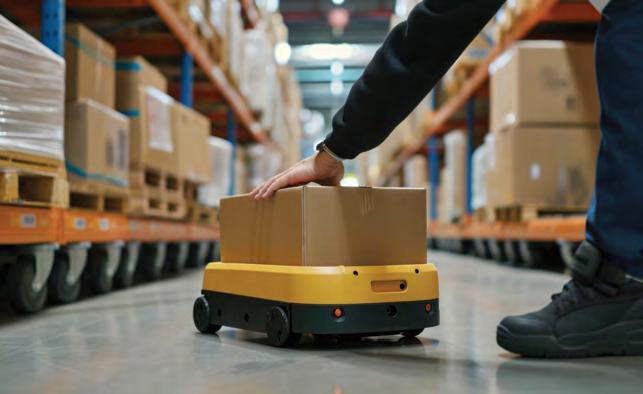
Reducing hazardous materials and toxins also decreases patient exposure and boosts care quality.
Reducing Financial Waste: Sustainable measures in healthcare result in cost savings through energy-efficient technologies and green building designs. These practices cut waste and financial expenditures and fulfil social responsibilities in a world facing environmental challenges. Sustainable procurement practices are also crucial.
Education and Awareness: Sustainability is a relatively new concept in healthcare. Training, workshops, and educational resources can boost awareness and equip stakeholders with the tools for sustainable practices. Collaboration among healthcare providers, policymakers, and sustainability experts is essential to promote sustainable healthcare adoption.
Measurement Metrics: Organizations must identify relevant sustainability indicators, set targets, and develop monitoring systems to track performance. Effective measurement is key to continuously improving sustainable healthcare practices.
FUTURE OUTLOOK
Healthcare is transforming significantly, transitioning organisations from traditional feefor-service models to value-based care approaches. While this shift benefits patients, it challenges logistics providers in managing costs effectively. Ensuring product integrity is paramount in healthcare logistics, as even minor temperature fluctuations during transport can impact drug efficacy and patient safety. To address this, there is a growing demand for real-time tracking and monitoring technologies to maintain compliance with safety standards. The COVID-19 pandemic highlighted the importance of supply chain flexibility, emphasizing the need to swiftly adapt to disruptions and ensure the uninterrupted delivery of critical healthcare supplies.
42 | LOGISTICS NEWS ME | MAY 2024 WWW.CBNME.COM
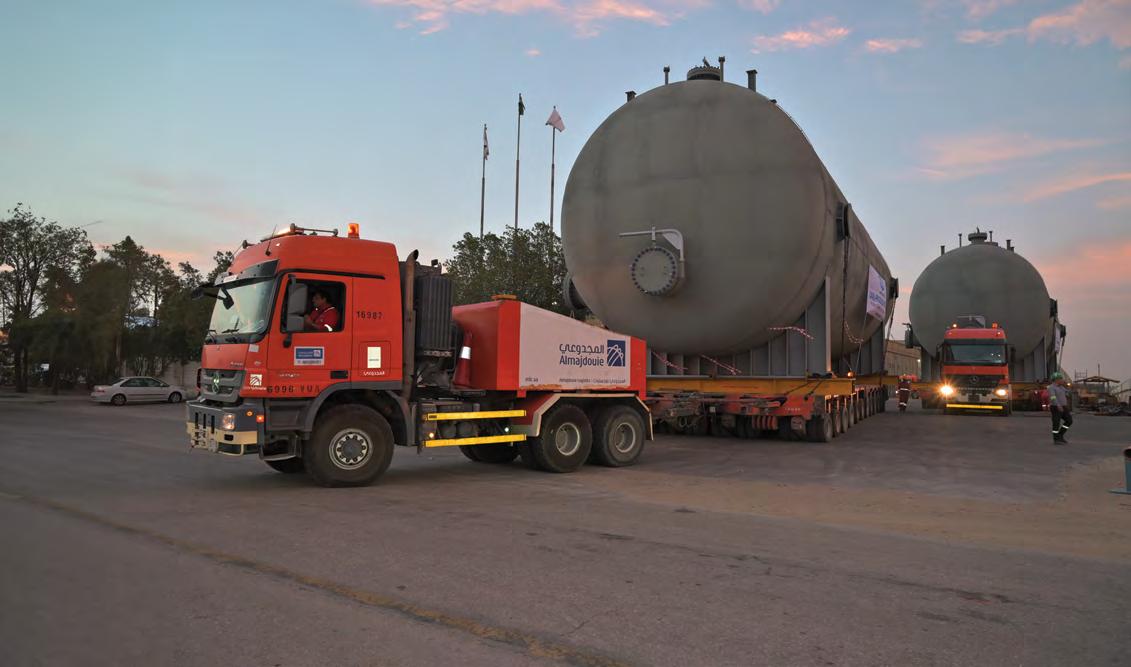
Sustainable logistics for a brighter future
Almajdouie Logistics serves diverse industries, including petrochemical, oil & gas, utilities, FMCG, retail, and automotive. With 50+ years of quality and reliability, it exceeds customers’ expectations. Specializing in project logistics, Almajdouie deploys extensive assets, including a 1,100-ton gantry crane, conventional trailer axles, SPMTs, and lowbed trailers for transpor ting oversized cargo.
Serving Saudi Arabia, Middle East , and Far East megaprojects, it suppor ts sustainability through national renewable energy initiatives like Dumat Al Jandal wind farm and Sakaka Solar PV plant , shaping a cleaner future.


Contact us www.mlc .sa
Transportation Freight Forwarding Projects Logistics Terminal Handling Customs Clearance Warehousing Visit us at BBME - Dubai Booth Stand: E24
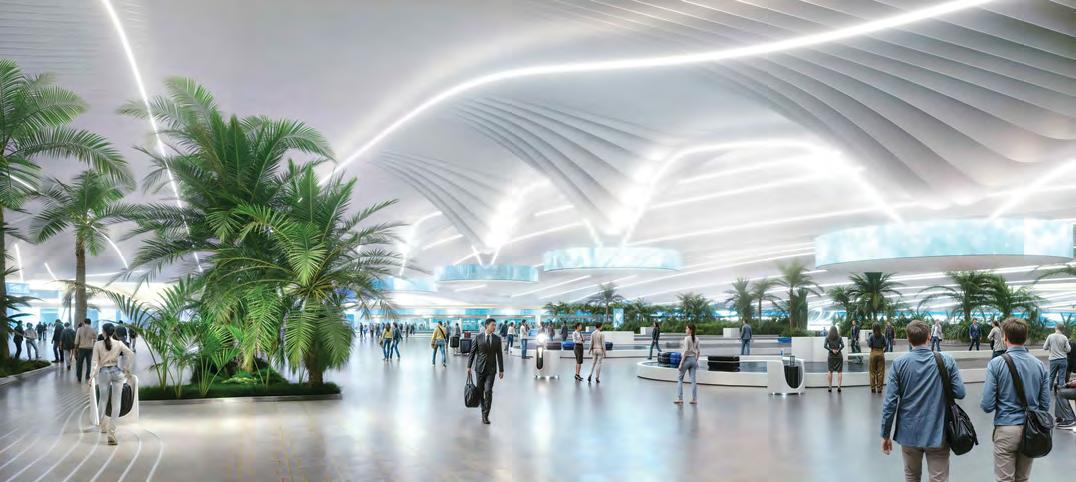
SHEIKH MOHAMMED BIN RASHID
GREENLIGHTS NEW PASSENGER TERMINAL DESIGNS FOR
AL MAKTOUM AIRPORT
His Highness Sheikh Mohammed bin Rashid Al Maktoum, Vice President and Prime Minister of the UAE and Ruler of Dubai reviewed the strategic plan of the Dubai Aviation Engineering Projects and approved designs for the new passenger terminal at Al Maktoum International Airport. When fully operational, it will be the largest in the world. Set to be built at a cost of AED128 billion, the new terminal will ultimately enable the airport to handle a passenger capacity of 260 million annually.
The approval came during His Highness Sheikh Mohammed’s visit to the Dubai Aviation Engineering Projects, accompanied by His Highness Sheikh Hamdan bin Mohammed bin Rashid Al Maktoum, Crown Prince of Dubai and Chairman of The Executive Council of Dubai, and His Highness Sheikh Maktoum bin Mohammed bin Rashid Al Maktoum, First
Deputy Ruler of Dubai and Deputy Prime Minister and Minister of Finance.
Sheikh Mohammed said: “Today, we approved the designs for the new passenger terminal at Al Maktoum International Airport and commencing construction of the building for AED 128 billion as part of Dubai Aviation Corporation’s strategy.
“Al Maktoum International Airport will enjoy the world’s largest capacity, reaching up to 260 million passengers. It will be five times the size of the current Dubai International Airport, and all operations at Dubai International Airport will be transferred to it in the coming years. The airport will accommodate 400 aircraft gates and feature five parallel runways. New aviation technologies will be employed for the first time in the aviation sector,” His Highness said.
LNME REGIONAL NEWS
44 | LOGISTICS NEWS ME | MAY 2024 WWW.CBNME.COM
“As we build an entire city around the airport in Dubai South, demand for housing for a million people will follow. It will host the world’s leading companies in the logistics and air transport sectors,” His Highness added. “We are building a new project for future generations, ensuring continuous and stable development for our children and their children. Dubai will be the world’s airport, port, urban hub, and new global centre.”
Also accompanying HH Sheikh Mohammed during his visit were His Highness Sheikh Ahmed bin Mohammed bin Rashid Al Maktoum, Second Deputy Ruler of Dubai; His Highness Sheikh Ahmed bin Saeed Al Maktoum, Chairman of Dubai Aviation City Corporation, President of Dubai Civil Aviation Authority, Chairman and CEO of Emirates Airline and Group; and His Excellency Mohammad bin Abdullah Al Gergawi, Minister of Cabinet Affairs, and Chairman of the Dubai Executive Office.
Master Plan Reviewed
Sheikh Mohammed reviewed the master plan for the Airport of the Future, which, upon full development, will emerge as the world’s largest airport, covering an expansive area of 70 square kilometres. The airport will have an ultimate capacity exceeding 260 million passengers and 12 million tonnes of cargo annually.
His Highness Sheikh Mohammed was
briefed during the event on the critical airport’s design features and strategic implementation plan.
Commenting on the occasion, HH Sheikh Ahmed bin Saeed stated: “With the continuous support and blessings of His Highness Sheikh Mohammed and in keeping with his vision for the Aviation industry in Dubai, we announce the commencement of the design and construction process for the new airport at Jebel Ali. The project’s first phase is expected to be ready within ten years, with a capacity to accommodate 150 million passengers annually.”
Addressing Anticipated Growth
Sheikh Ahmed bin Saeed emphasised, “The new airport, which will ultimately be over five times the size of Dubai International, will prepare the ground for the next 40 years of anticipated growth in Dubai’s aviation sector. It will respond to the Hub Airline’s ambitious plans regarding fleet acquisition and passenger growth. The airport will provide cutting-edge technologies, passenger facilities with unmatched service, and state-of-the-art aviation support facilities.
“Al Maktoum International (AMI) is planned in such a way as to represent a leap into the future. It will comprise five parallel runways with a quadruple independent operation, west and east processing terminals, four satellite concourses with over 400 aircraft contact stands, an uninterrupted
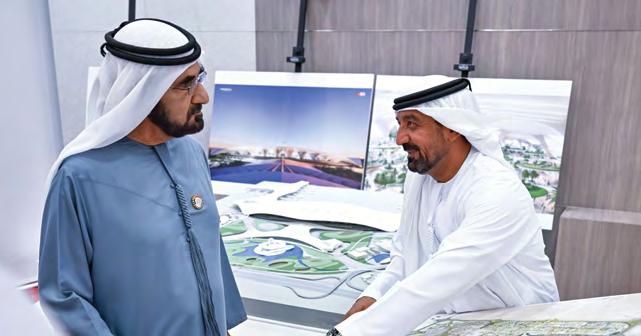
automated people mover system for passengers, and an integrated landside transport hub for roads, Metro, and city air transport.
While embracing sustainability, Al Maktoum International will strongly contribute to mitigating environmental emissions, aligning with the UAE’s vision for a sustainably built environment. Its integrated approach is targeted to leverage local resources and climatic conditions, achieving exemplary efficiency targets and sustainability goals. AMI aims to achieve a LEED Gold Certification.”
His Excellency Khalifa Al Zaffin, Executive Chairman of Dubai Aviation City Corporation, highlighted the project’s economic benefits. “The development of this new airport will be an integral part of Dubai’s economy and a major contributor to the Dubai Economic Agenda (D33). It will generate estimated workforce and residential requirement for over a million people living and working in Dubai South (the metropolis), which has been under development and operation since 2007,” he said.
In a discussion on the sidelines, Her Excellency Suzanne Al Anani, CEO of Dubai Aviation Engineering Projects, said: “Dubai spearheads again. With the determination to maintain its leading role in the aviation sector globally, this airport development will represent an entirely new approach to the concept of airports. The exponential acceleration of technologies and the abundance of knowledge in innovation will make us reinvent the passenger journey and experience.
“Connectivity and accessibility are also prioritised in coordination with our strategic partners, ensuring efficient public transportation links and a reduced reliance on private transport, which supports the reduction of the project’s carbon footprint.”
NEW PASSENGER TERMINAL DESIGNS FOR AL MAKTOUM AIRPORT LOGISTICS NEWS ME | MAY 2024 | 45
SHEIKH MOHAMMED BIN RASHID GREENLIGHTS
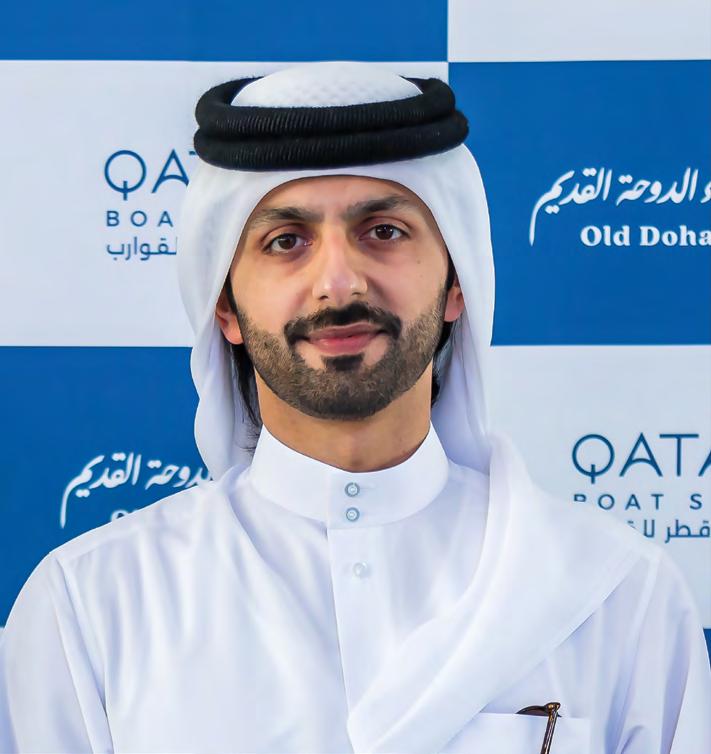
OLD IS GOLD
Please introduce yourself and tell us about Old Doha Port.
I am Mohammad Al Mulla, the Chief Executive Officer of
Old Doha Port. As a team, we have seen a tremendous transformation at Old Doha Port, from a historic commercial harbour into Qatar’s premier seaport. It now serves as the first
and only seaport in Qatar. This strategic positioning aligns with Qatar National Vision 2030, emphasizing sustainable development and diversifying the economic landscape, particularly by
enhancing the tourism and cultural sectors.
Our redevelopment efforts transformed the port into a dynamic mixed-use marina in time for the FIFA World Cup 2022. We introduced over 50 cafes, 100 retail outlets, and 150 hotel apartments, which boosted the local economy and positioned the port as a key destination for tourists and visitors. This evolution supports Qatar’s broader objectives to enrich maritime culture and strengthen our identity on the world stage.
Beyond the FIFA World Cup 2022, Old Doha Port was built with a deep commitment to promoting Qatar’s cultural heritage and expanding the tourism sector. We have set out to make Old Doha Port a symbol of our nation’s vibrant culture and readiness to meet the demands of the maritime world.
Today, the Old Doha Port represents history, culture, and modernity. It contributes significantly to Qatar’s cultural outreach and fulfils our vision of becoming a world-class yachting and tourist hub. It’s a place where every visitor can experience Qatar’s unique heritage in a dynamic setting.
1. What impact has Old Doha Port had on the tourism industry in Qatar? Old Doha Port significantly revolutionized tourism in Qatar by introducing cruise
LNME PORT
Mohammad Al Mulla, CEO of Old Doha Port, discusses aligning port development with Qatar’s Vision 2030
46 | LOGISTICS NEWS ME | MAY 2024 WWW.CBNME.COM

tourism, supported by round-the-clock immigration and customs services at The Grand Cruise Terminal. This addition opened Qatar’s doors to international visitors via sea, boosting tourism and offering unique maritime experiences. As the nation’s only marina capable of accommodating superyachts, Old Doha Port positioned Qatar as a critical destination for luxury sea travel. It connects Qatar with neighbouring countries and allows various sea vessels to access our shores. This strategic enhancement diversified our tourism offerings and elevated our profile in the global yachting community.
Beyond its logistical capabilities, Old Doha Port evolved into a top-tier tourist destination
within Qatar. It provides bespoke dining and entertainment experiences in the art-enriched Mina District, alongside expansive green spaces in the Mina Park areas, spanning over 200,000 square meters. Its prime location near major attractions such as the Museum of Islamic Art, The National Museum, Souq Waqif, and the Corniche increases its appeal, giving tourists easy access to Qatar’s cultural and historical sites.
Old Doha Port hosted 81 cruise ship visits and approximately 350,000 passengers until April 2024, making it our most considerable cruise season ever. According to Qatar Tourism Statistics, we have achieved a milestone by recording a 151% increase in cruise visitors compared to the previous season. This growth demonstrates Old Doha Port’s pivotal role in expanding and enriching Qatar’s tourism landscape, aligning with our national vision to become a leading global tourism hub.
2. Tell us about the significant transformation of Old Doha Port for the FIFA World Cup 2022.
Old Doha Port underwent a significant transformation in preparation for the FIFA World Cup 2022, transitioning from a historic commercial port to a reimagined tourism destination. This extensive redevelopment was strategically planned to showcase Qatar’s readiness to host a global event like the World Cup and to offer visitors a world-class maritime and cultural experience. Our transformation included several vital enhancements. First, we upgraded our maritime services to best-in-class standards, ensuring that Old Doha Port could handle increased international sea traffic and meet the high expectations of global travellers. We developed substantial tourism infrastructure to enhance the visitor experience alongside these improvements.
Key developments at the port included the construction of the Mina Hotel and Residences,

OLD IS GOLD LOGISTICS NEWS ME | MAY 2024 | 47
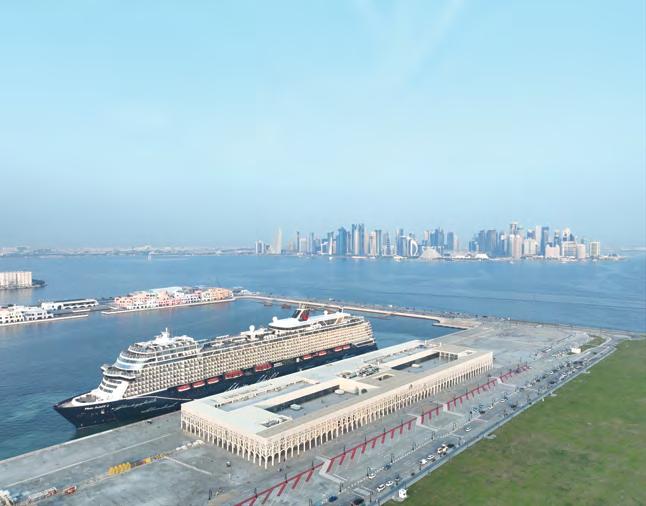
which now offers more than 150 hotel apartments, providing luxurious accommodation options for tourists and visitors. Additionally, we introduced over 50 cafes and 100 retail outlets, enriching the port and offering locals and tourists a taste of our rich culinary heritage and diverse international flavours.
Moreover, the Mina District was developed to include over fifty food and beverage and retail outlets, turning the port into a bustling hub of activity and commerce. This area was designed not only to cater to the needs of tourists but also to create a vibrant community space for locals to enjoy.
These enhancements significantly contributed to Old Doha Port’s overall appeal, making it a key destination during the FIFA World Cup 2022 and beyond. By integrating luxury accommodations, a wide range of dining options, and various shopping and entertainment opportunities, the Port has been established as a pivotal element in Qatar’s tourism landscape, reflecting our commitment
to innovation and excellence in hospitality.
During the preparation and execution phases of FIFA World Cup 2022, we envisioned turning Old Doha Port into a long-lasting legacy destination serving Qatar’s growing tourism demand for years to come.
3. With your technical expertise and strategic insights, what innovative practices or technological advancements did the port incorporate?
At Old Doha Port, we’ve leveraged innovative practices and technological advancements to enhance our operations and visitor experiences. Key features include floating amenities like a fuel station and a supermarket, providing essential services directly on the water for added convenience.
We also prioritize environmental responsibility, using proprietary spill pads to handle oil leaks efficiently. Safety is paramount, and our staff is extensively trained in emergency responses. Many are certified captains
and divers, ready to address any issues swiftly.
What truly sets Old Doha Port apart is its transformation into a dual-purpose facility—a national seaport and a tourist destination. Located in the heart of Doha, close to major tourist sites, the port serves as a one-stop shop for marine needs, combining marine retail and service centres in a single location.
4. Sustainability is a growing concern nowadays. Is sustainability considered?
Sustainability is an essential pillar of our operations at Old Doha Port. Recognizing the critical importance of environmental responsibility, locally, regionally, and globally, we are committed to advancing sustainable practices across all aspects of yachting, marine experiences, and tourism. Our approach includes continuously searching for innovative methods and the latest technologies to minimize our ecological footprint.
We are engaged in various CSR initiatives, collaborating with stakeholders at both local and international levels to enhance our sustainability efforts. These efforts are part of our commitment to adopting and integrating leading-edge practices that ensure our operations contribute positively to the future of the maritime and tourism industries.
Our dedication to sustainability goes beyond mere compliance; it’s about leading by example in our sector. We remain steadfast in our commitment to fostering a responsible future, continually adapting and improving our practices to meet and exceed environmental standards.
5. How do you see Old Doha Port evolving, and what opportunities do you foresee for its continued growth and success?
As we look to the future, Old Doha Port aims for continued expansion and
LNME PORT
48 | LOGISTICS NEWS ME | MAY 2024 WWW.CBNME.COM
innovation that is aligned with the growth of Qatar’s tourism industry. Our focus remains on enhancing our marinas with the latest technology, further solidifying our position as a premier destination that seamlessly integrates tourism, culture, and marine excellence.
Old Doha Port is strategically situated to leverage the rapidly expanding maritime industry in Qatar and the region. We are committed to continuously upgrading our facilities and services to maintain our status as a provider of top-notch marine services. This includes staying at the forefront of technological advancements and ensuring we offer all visitors state-of-the-art amenities.
Additionally, we are committed to strengthening our collaborations through public-private partnerships. These alliances are crucial as they enable us to develop comprehensive solutions that cater effectively to local and international visitors, enhancing their overall experience and satisfaction. By doing so, Old Doha Port will meet the current demands of the maritime and tourism sectors and anticipate future needs, ensuring our long-term growth and success.
6. What legacy and influence do you wish Old Doha Port would leave?
At Old Doha Port, our vision is to forge a legacy of global renown characterized by excellence and innovation in every facet of our operations. We aim to continue serving as a vibrant point of convergence where Qatar’s rich cultural
heritage meets maritime excellence, preserving and enhancing the legacy of this historic port.
We aim for Old Doha Port to be recognized as a gateway to Qatar and a destination offering meaningful experiences to locals and tourists. By providing engaging and enriching interactions, we enhance Qatar’s cultural and economic fabric. Furthermore, we are committed to building and maintaining reliable local, regional, and international partnerships. These collaborations are essential as they help us foster economic growth and position Qatar as a global maritime and tourism industry player.
Ultimately, we strive for Old Doha Port to leave a lasting impact, setting a standard for how ports can contribute to a nation’s cultural and economic prosperity while also serving as hubs of innovation and cultural exchange.

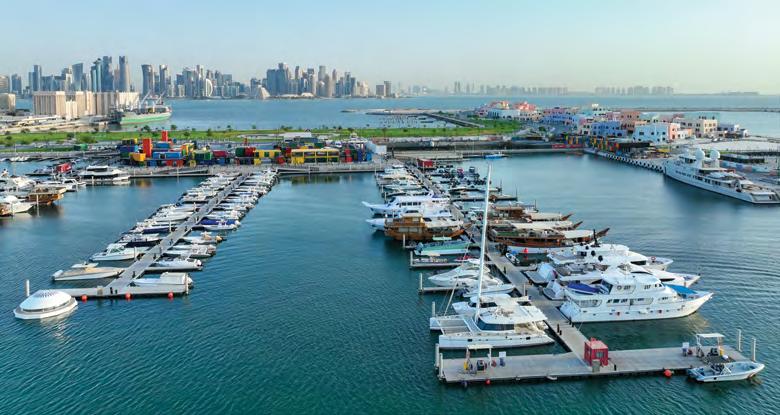
OLD IS GOLD
LOGISTICS NEWS ME | MAY 2024 | 49
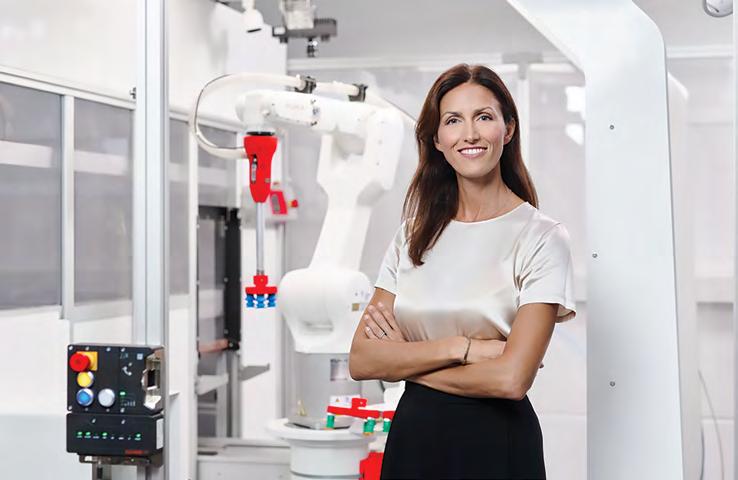
GIULIA COLOMBI CEO OF SWISSLOG EMEA
Under the expert guidance of Giulia, Swisslog achieves unmatched efficiency and precision in every detail. Join us for a 24-hour journey into the heart of Swisslog, where cutting-edge automation and dedicated teams drive the future of logistics.
6:40 AM: I start my day by waking up early to prepare breakfast, looking forward to the cheerful morning buzz when the kids wake up. We enjoy a family breakfast together, which is always a great start to the day.
7:40 AM: After breakfast, it’s time to drop the kids off at school before I head to the office.
8:00 AM: My commute doubles as a productive time. I make calls from the car, catching up with the regional sales and consulting teams. We discuss business reviews, customer satisfaction, and new opportunities.
8:45 AM: Once I arrive at the office, I check my emails and grab coffee.
It’s a nice moment to catch up with friends at work.
10:00 AM: I join an online meeting with our Middle East Team. We hold a success and risk review for an upcoming customer in Dubai, involving colleagues from sales, operations, purchasing, finance, and quality.
11:00 AM: A meeting with our CFO is up next, where we discuss new projects and financial KPIs. It’s crucial to stay aligned on our company’s financial health.
12:30 PM: I take a quick lunch break in the office, a perfect time to catch up with our team. It’s always good
to hear about the current issues firsthand and share updates.
1:00 PM: I have a one-on-one online meeting with our Head of People and Organization. We review and finalize the open job positions for strategic roles, ensuring we’re all set for future needs.
2:00 PM: Next, I meet with our Head of Marketing to align on the main events and focus areas for Q3 and Q4, particularly in digital marketing and industry trends.
3:00 PM: Time for a coffee break. I grab some chocolate for an energy boost and make a video call with my mother to say hello to the kids and ensure their afternoon activities are going smoothly.
3:30 PM: The afternoon continues with a Strategic Projects Portfolio Review Meeting with the Operations and Project Management Office teams. It’s essential to keep our projects on track and address any challenges swiftly.
5:00 PM: A quick phone call with the Head of Sales gives me the latest updates on our current customer negotiations.
6:00 PM: My workday wraps up with a last call from the car as I head out to pick up the kids from their afternoon club activities.
7:00 PM: Once home, I take some time for myself with a relaxing shower, then prepare dinner for the family.
8:00 PM: Dinner time is family time. We enjoy a meal together and then settle down to watch movies— usually, the kids pick!
10:30 PM: After a fulfilling day, it’s time to go to bed, recharge, and get ready for another exciting day tomorrow.
LNME 24 HOURS
50 | LOGISTICS NEWS ME | MAY 2024 WWW.CBNME.COM

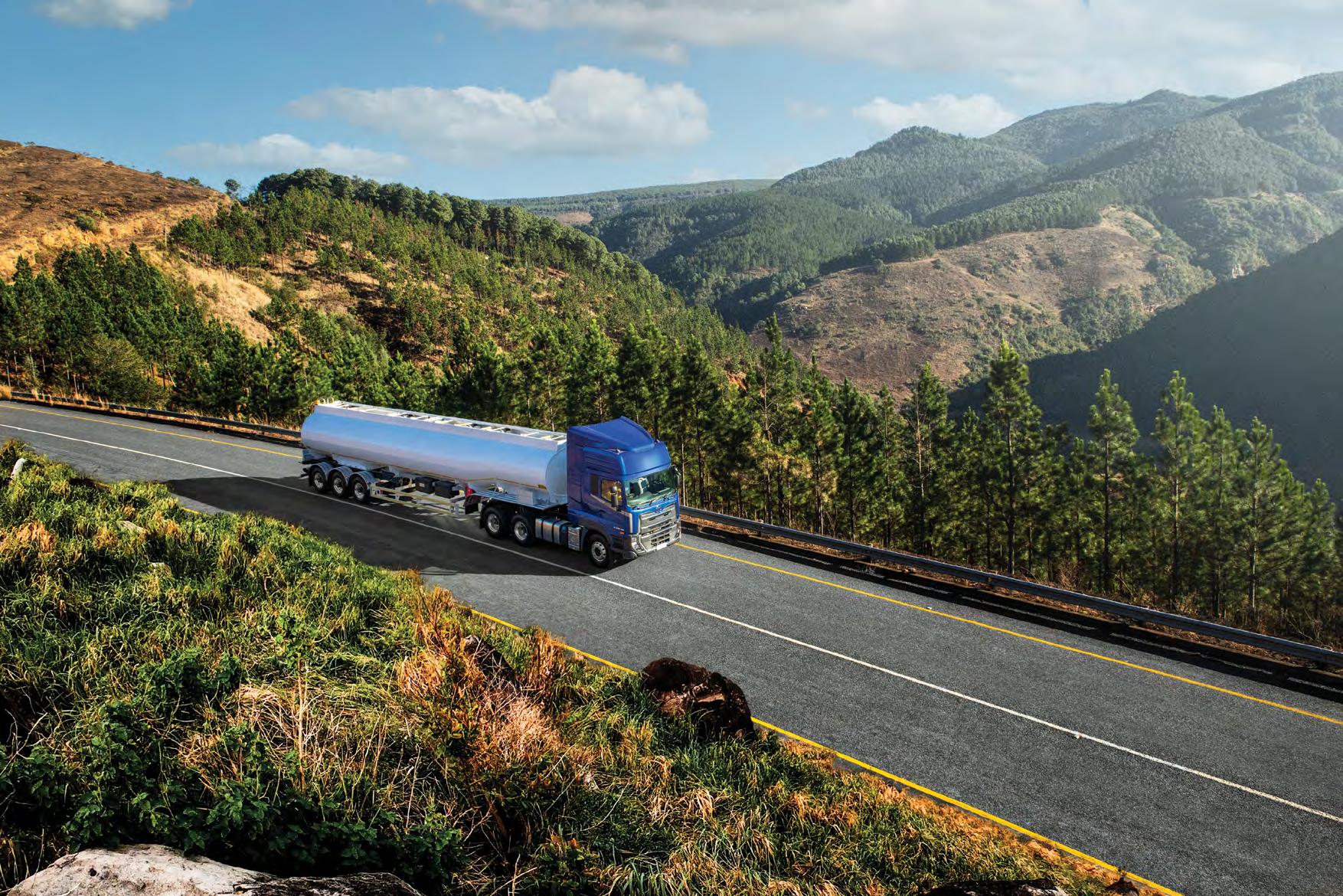


LOGISTICS NEWS ME | MAY 2024 | 51
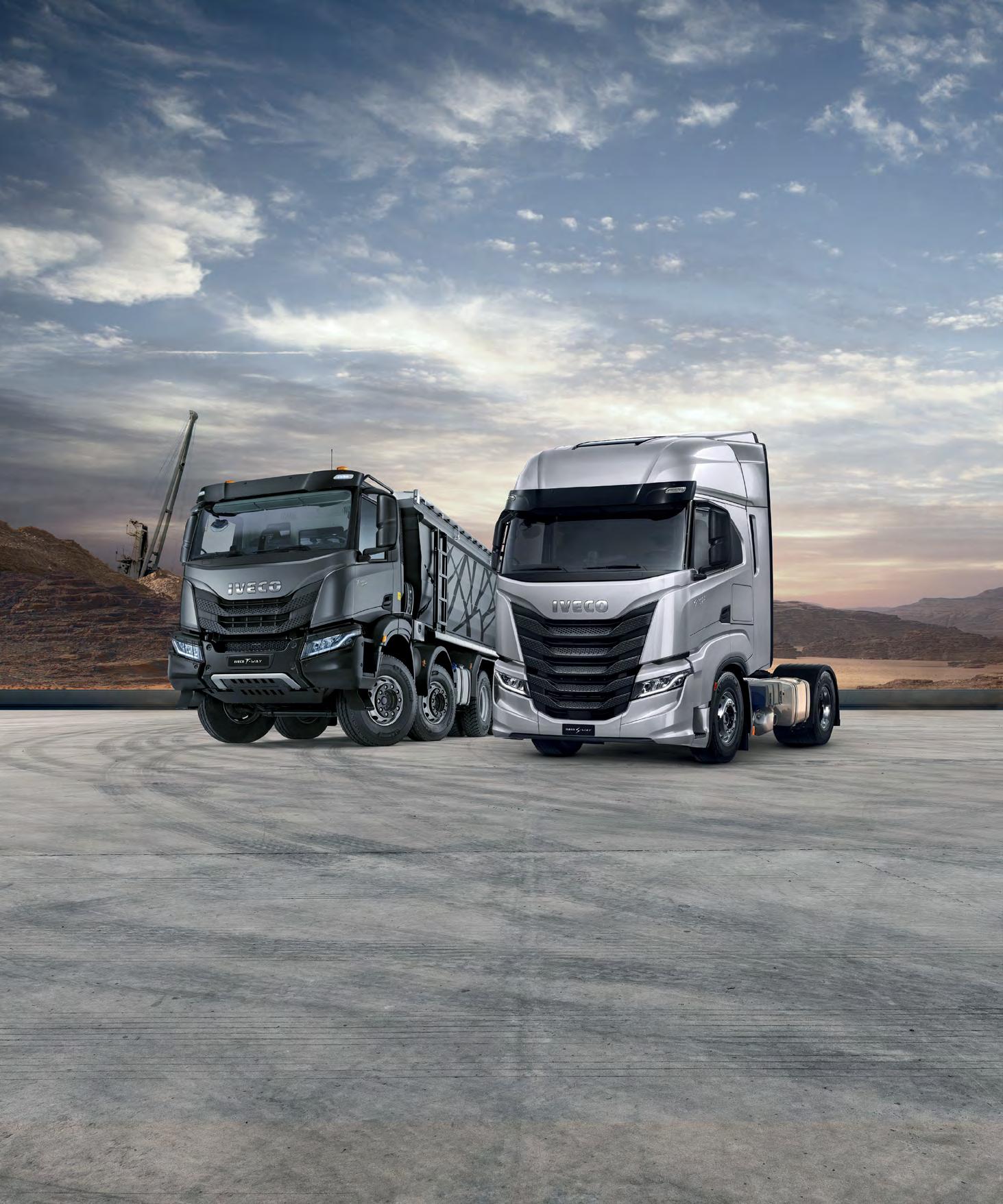
Drive the new way.
New IVECO T-Way: high productivity and safety on off-road terrains
With a complete line-up of AWD and PWD versions and the the 16-speed HI-TRONIX automated gearbox, the IVECO T-Way features a host of functionalities such as Rocking Mode, Off-road Mode, Creeping Mode and 4 reverse gears to tackle with ease the toughest off-road conditions. The new architecture of the EBS system, combined with disc brakes on all wheels, greatly improves the vehicle’s performance and the driver’s safety in the most demanding applications.
New IVECO S-Way: high technology and efficiency for on-road missions
The new IVECO S-Way, with a completely redesigned and reinforced cab, offers a wide choice of Euro III/V diesel engines, a delivering class-leading power from 360 HP to 560 HP Euro III / 570 HP Euro V and superior fuel-saving devices, such as anti-idling feature, Ecoswitch, Ecoroll and Smart Alternator, 12-speed HI-TRONIX automated transmission with the most advanced technology in its category, electronic clutch and best-in-class torque-to-weight ratio.




















































































 Vibha Mehta Editor-in-Chief vibha@bncpublishing.net
Vibha Mehta Editor-in-Chief vibha@bncpublishing.net











 SAUVÉ-HOPKINS, Divisional Senior Vice President (DSVP) Airport Operations
SAUVÉ-HOPKINS, Divisional Senior Vice President (DSVP) Airport Operations

























 Vice President
Vice President






















